#Arthur's Father aka The King
Explore tagged Tumblr posts
Text
lots of complaining underneath sorry I couldn’t fit everything in the tags like usual
I am genuinely convinced that so many Merthur shippers actually ship Arwen but identify more with Merlin, so they just recreate Arwen’s dynamic (simp, over-protective Arthur and I-can-take-care-of-myself!, always-right!, actual-saint! girlboss) and give it to Merthur. Reasons for this are racism (obviously), the fact that early seasons merlin likes to read (scholarly books on magic not a fucking romantasy mind you), early seasons Merlin being 12 lbs, and the fact that Merlin has magic (cool powers, gay allegory, and is oppressed). Other reasons, too, but these I think really contribute to people directly projecting onto him like they do Morgana. I think this makes people feel personally victimized when Arthur does anything to Merlin bc he’s blond jock and Merlin is bookish, sassy nerd.
But fanon merlin is nothing like actual merlin. Merlin is a MAN; he’s just as arrogant as every other MAN. He’s a bit of a fucking lit bro that thinks he’s underappreciated bc he’s into important, valuable things instead of sports (for idiots). He canonically an genius and he’s many times insufferably arrogant, too.
But only Arthur needs to fix his arrogant bc Arthur’s arrogance is jock bro, so it’s more immediately recognizable and disliked. Even tho, I don’t actually find Arthur that arrogant, or i just can’t forget that most of Arthur’s arrogance is a front for insecurity. He’s only sincerely arrogant about sword fighting (which I don’t mind bc he’s literally the best swordsman in the kingdom and it’s not bragging if it’s true) and little presumptuous bc he’s a wealthy royal.
But this is a long winded way to say that some Merlin fanfics feel like weird revenge fantasies (romantasies??? but not in the book genre way) of nerdy girls with their high school football players mixed with a little class anger (but in the most insincere way bc morgana is never criticized for being rich bc she’s mostly portrayed as a gay white woman, and people don’t understand, or don’t want to address, intersectionality).
Which means Merlin’s actions don’t get judged, but do get examined and then excused, until they are in relation to Morgana. Bc Morgana is ACTUALLY skinny, oppressed, gay allegory, cool powers, always right, sassy, genius, sword fighting, resistance fighter white girl that constantly wins every argument she has with Arthur and makes him look like an idiot. That’s why she gets way more forgiveness and grace than Arthur even tho she is a 1000x worse person. It’s also why she and Merlin are usually besties (especially over him and Gwen) even tho they canonically have a very big political fallout.
Even with the Lamia episode. I have seen so much discourse (and a good amount of fics) that criminalizes the knights (jocks) for their treatment of Merlin (and sometimes Gwen) with people wanting them to prostrate themselves in guilt and then get put into the infirmary by Arthur for daring to hurt Merlin when they were LITERALLY ENCHANTED. Obviously, they themselves would feel guilty, but that doesn’t mean they SHOULD. And Merlin is not fucking lectured or made to apologize when he is enchanted to, and attempts to, KILL Arthur. Like, yeah, okay, the knights grabbed him and were mean to him, but Merlin’s a grown fucking man, the most powerful sorcerer, and, by now, literally physically bigger than both Gwaine and Elyan. He’s fine.
I thank god everyday that Arthur wasn’t there during that fucking episode. Every fucking merthur fanfic would’ve been insufferable.
I will never forgive fandom how unfair it is about Arthur
Dark Merlin It's usually good angst. You know, Merlin had had enough. Dark Arthur? Arthur is a fucking rapist, a monster.
Merlin guilty? Merlin feeling guilty and comforted by the entire cast. Arthur guilty? Arthur doing the worst things possible and someone razing him to the ground
Merlin always gets these nice things. always flowers, courtship, everything. Found family? Everyone comforts Merlin because big bad Arthur. (literally almost every Merlin "found family" is everyone loves Merlin and treats Arthur like shit)
Merlin gets an apology. Arthur? My parents will love me faster than someone will apologize to Arthur in fanfiction.
"suicidal, self-harming Merlin" but Arthur has no right to have mental problems (a whole lot of people have wanted him dead since he was born)
Protectivr knights? Always about Merlin.
Even the fucking omegaverse. Alpha Merlin is a nice calm creature who pretends to be a beta. Alpha Arthur... wild animal, keep Merlin in a cage.
No. Just no.
(forever grateful to those stupid British people that arthur never told merlin he was fat. because the fandom understands that something is a comedy if merlin says it. if arthur it would be ,,abuse")
#everybody loves Merlin my beloathed#did I make a sarcastic joke to the replies? yes#did I then go a little nuts complaining? also yes#there’s also an interesting element of this that has to do with genuine dynamic preference#in that I think people who really like the uwu sassy Merlin also are into booktok relationship dynamics#and therefore Arthur is given bootok bf treatment 🤢#and as someone who constantly makes jokes that Merlin is booktok bf bc I find it funny#bc arthur isn’t uwu quiet book girlie but arrogant mean warrior king and therefore it’s funny that he’s now given every terrible girl trope#(I-can-take-care-of-myself! *gets kidnapped*#my-father-has-trained-me-since-birth-to-be-a-badass *wins fanservice fights but loses any fight actually relevant to the plot#and needs to get saved by sarcastic man that moved here last week; has no combat experience; nor any formal training; but is Him*#*is sometimes allowed rights by overprotective man secretly obsessed with him also carrying another huge secret about betrayal*)#but anyway it’s just that Merlin becomes like a weird Mary-sue character that even like cenred and mordred are portrayed being obsessed with#when cenred was super fixiated on Arthur and mordred idealized Arthur and focused on him bc Merlin was such a dick to him#also Arthur does have valid reasons to get mad about the magic reveal but bc people just conflate revealing magic to coming out#the nuances are lost#aka merlin taking advantage of its secrecy to enchant Arthur; trick Arthur; belittle Arthur#and arthur is made to do something unforgivable or disproportionate so these nuances don’t have to be addressed#also no shade to Arwen but there’s a reason I ship Merlin and not Arwen and that’s bc I personally find their dynamic boring#no Patrick Arthur does not simp for Merlin#I’m gonna hold your hand while I tell you this: Merlin is the simp#merlin#arthur pendragon#merlin wank#merthur#merlin meta
149 notes
·
View notes
Text
O.O!!! :Dc wait a second.... Aquaman >.>
Good JOB Brain! That IS a good idea!
Don't know if YOU GUYS all know this? But Arthur? Son of a Lighthouse keeper and the Queen of Atlantis? THAT Arthur Curry aka. Orin? Has CONSIDERABLY enhanced durability. Like... *hit by a car* "ha. Cute." Enhanced.
It's because of the DEEP Sea water pressure he's built for.
I bring this up? Because the man is a legit BAMF. Absolutely TERRIFYING near any body of water. Dude has SUPER STRENGTH AND HYDROKINESIS. Not ONLY are YOU filled with water, but every street corner in the world has pipes! He is NEVER not armed.
That's not including the "yes I can ask a lobster to take your dick off" thing.
But most of all? He has the RAGE. The lifetime of injustice after injustice. His home under attack, his people suffering and regarded as LESS. The poison dumped into their air. Their lands taken, PRESUMED the property of land dwellers.
Treated as criminals and monsters should they DARE defend themselves.
Yet? He is a leader. A husband, father, mentor. The death of his child can not take from him that title. Nor years numb that pain. He strives to be good. Be wise. Live well.
Yet? There is once AGAIN fuckery in his ocean. Some "secret" lab. Poking at a swirling green portal. At the BOTTOM OF THE SEA. For God's sake, they DO REALIZE, you can't HIDE things from him down here, RIGHT?
It looks radioactive.
He refuses to have that so close to Atlantis.
Sends a notice up to the Watchtower, a call back to his Wife, and leads the gaurd team in. Painfully easy, really. Bog standard humans, caught off gaurd. Right until one of them does something... stupid.
He tries to blow the place. Destroy evidence. It would kill all of them. Which is not Arthur's main concern. No, what IS? Is that it would dump radioactive SOMETHING into the waters near Atlantis.
He dives forward. They struggle. A button is smashed and...
Their containment field drops.
They had been keeping it in a perfect vacuum.
Arthur is sucked in.
Watches, in free fall, as his men's faces turn to horror. As they desperately dive to follow him. Loyal. True. But ultimately too late. He curses himself as he loses sit of them. But forces himself to focus, twist, get his feet under him. His is in air, above LAND.
He hits HARD.
But not the ground like he had planned.
He's slamed, at an awkward, frantic, angle and knocked off course. His weight crashing down onto a scrawny slip of a boy, who weezes and struggles to get a proper grip. His arms not quite long enough to go all the way around his barrel of a chest.
He helps, by slinging an arm over his young savior.
Only then, does he notice, the tiny crown of ice and nebula, poking at a jaunty angle from the child's head.
Their landing would be rough, had Arthur not caught them, once he gets close enough to the ground. The young royal gasping for air, having clearly pushed his limits to get to Arthur in time. He hauls himself up. Not yet a man, but not as young as Arthur feared. His eyes glow.
"Hoooly SHIT. Are you okay?! I hit you really hard! I'm so, SO sorry! I panicked! And-"
Honestly? A little bruised. But nothings he's going to ADMIT too.
More concerning? The injuries.
There's a screech of tires turning sharp corners. Sirens getting closer. The young king whips around. Terror seeping onto his face. It gives Arthur an unobstructed view of pointed ears, softly glowing skin with star like freckles, and scars that creep up the child's neck. He does not like the picture being painted.
"We have to GO. Now. Please, I'll explain in a moment! But we have to go NOW!"
Really, REALLY does not like the picture. And he has WAYS of dealing with such things as this. But safety first. Prioritize the children. They go. He vows to get answers. And all around Amity? Certain individuals days are NUMBERED.
@babbling-babull @hdgnj @the-witchhunter @hypewinter @mutable-manifestation @lolottes @nerdpoe
1K notes
·
View notes
Note
There are already so many AU's that I figure no one will notice another one, so I might as well suggest the one is been thinking about. What if Arthur actually was reborn as Daemon's son? He can be a bastard, or an older son of Rhae/Elyse, whichever one you like the most. If he is a bastard, would Daemon even know about him? I'm assuming his mother would have been a prostitute Daemon was fond of, but would she have told him that they had a child together? Would she have told Arthur who his father is? If he's another son of Rhae/Elyse, would he have tried to get into contact with Daemon sooner? If he gets Summerhalled at the same time as Jon and Rhaegar, would it be harder for their relationship to develope, since Arthur and Rhaegar already know each other and Jon would be something of an outsider? There are honestly so many places this AU could go.
It depends on if the setup is meant to be fairly similar (Arthur shows up as a mystery knight to compete for the Princesguard).
If so, aka he's 16ish, what probably makes the most sense is a either a prostitute or a lord's daughter who got swept up in the romance of sleeping with a prince. Perhaps a woman from the Dornish marshes (like Cole) briefly just before he was forced to marry Rhea. That would work best with the timing (Daemon would have been 17 and he's 34 right now).
Since Daemon was in Runestone when the baby was born and now married, she likely knew the king would not look kindly on her bringing scandal on the marriage, so wouldn't have contacted Daemon. There's also the potential issue of not knowing for certain whose child it was (depending on if she was a prostitute or not)--perhaps his eyes were more blue/dark at birth and only settled into purple when he was a year or two old.
It somewhat amuses me to think that Arthur is actually mistaken for a bastard of House Dayne when a member stumbles across him and his mother a few years later. Say, perhaps, by the Lord of Starfall's younger brother who died of summer sickness. In that scenario, he is likely raised in Dornish fashion as a noble son of House Dayne via a paramour and could conceivably still be awarded Dawn and become the Sword of Morning.
I think this path works better than Elys and/or Rhea keeping another child secret from Daemon, which often feels a little too outlandish to me.
Then there are the fun questions of what to do, once everyone takes a look at the mystery "Dornish" knight and is like...anyone else notice that he looks a LOT like Daemon? With Jon's dark hair? Arthur must know his mother's name, which Daemon may or may not recognize. If he does, then shit, that's his son. *grabby hands* No, you are NOT joining the Princesguard, you are a PRINCE once Viserys legitimizes you.
(Meanwhile, Arthur has his first argument with Daemon because of COURSE he's joining the Princesguard, who better than a prince to guard other princes like his precious younger brothers? While Daemon is adamant that he should be allowed to marry and have children and he can still be a knight, and how is he supposed to claim a dragon if he's stuck on guard duty all the time. Which...is something that Arthur never considered because DRAGONS. HIM. WHAT.)
In fairness, Arthur has only known Rhaegar for a few months (I have him joining the Kingsguard roughly six months before Rhaegar gets summerhalled), so about the same length of time Jon and Rhaegar have known one another! So I don't think it hampers him bonding with Jon too much, especially given how starry-eyed Jon will be about the Sword of Morning being their BROTHER, how cool. (Rhaegar shaking his head because Jon saved the world and doesn't realize that HE'S the coolest.)
I get the sense that Arthur and Daemon would clash heads a lot, too. Arthur doesn't really have any childhood trauma in his original life, so it's not like he's seeking a father figure, and his pre-summerhall version here had a happy childhood in Starfall. Daemon is, as far as he's concerned, the sperm donor.
What ultimately wins him over some with regard to Daemon is probably how sweet he is with the twins, and how badly they want him to be their brother. But Arthur probably always consider Daemon more of an ally than his father-father, despite Daemon's best efforts.
57 notes
·
View notes
Text
MERTHUR AUs
A collection of my Merthur fics that I thoroughly liked. This started out as a fluffy collection, how did this turn out to be a goddamn AU collection?? Also can I just say “Arlin” is such a stupid alt ship name. Glad we stuck with Merthur, christ. This list is a bit shorter than my last one, sorry about that!
If there are fanfiction you cannot access and you do not have an ao3 account then that probably means the fic is restricted, sorry! I highly recommend you to create an ao3 account.
Click “Keep Reading” for the list. ( dividers © )

How (Not) to be a YouTuber: A Comprehensive Guide by Idiots by Imagined, Scarlet_Ribbons ( T | 7k words | one-shot )
Arthur has a gaming channel. Merlin has a gardening channel. The only thing they have in common, it seems, is the fact they're both successful YouTubers, and that their followers want them to do a collab in spite of how different their content is.
Or: In which Arthur and Merlin flirt (despite Merlin’s mysterious fiancé), Morgana dishes out the hottest gossip, Gwaine keeps trying to fight the entire internet, and their fans are maybe just a little too overbearing.
Merlin/Arthur Pendragon | Youtuber AU, Secret Relationship, Social Media
twitterature by cominupforair ( T | 5k words | one-shot )
Arthur is Camelot FC’s star striker. Merlin is Ealdor FC’s starting goalkeeper. And the whole world thinks they’re rivals, but are they?
aka the Social Media/Football/Wedding AU nobody had asked for
Part 1 out of 3 : Camelot FC
Merlin/Arthur Pendragon | Football AU, Idiots in Love, Secret Relationship
Shadowlord and Pirate King by Footloose, mushroomtale ( E | 169k words | completed )
A fast ship, a good crew, a treasure, a Clan to lead -- that's all Arthur Pendragon has ever wanted. He sits on the Council, he supports his father's kingship, and he keeps an eye on the Imperial Conglomerate when they come too close to Pirate space.
One day the Conglomerate infiltrates the Clans and poisons the King. Arthur must search for a cure to keep his father alive and the Clans from civil war.
An escape route, a sharp knife, a target, the shadows at his command -- that's all Merlin has ever needed. He fulfills his assignments, he uses the Sterling to sustain his once-royal House in their exile, and wages a private war against the Imperial Conglomerate.
When he learns of an elaborate plot to assassinate him, Merlin does the opposite of what's expected. He flees onto a Pirate ship.
There's a saying among the Pirates: that one's fate is written in the stars. Destiny will always set to rights what has been made wrong.
Arthur and Merlin know that they were meant for the other from the moment they meet. They can feel it from across the galaxies separating them. Nothing can stop them from being together or from fulfilling an ancient prophecy.
Merlin/Arthur Pendragon | Space / Original AU, Space Opera, futuristic warfare
Noodles Save The Day, Even In Mysterious Ways by Dream_Me_A_Song ( T | 12k words | two-shot )
Arthur has been having a very bad week. Arguments with his father, sister and his best friend. Just got laid of his job. And now made a fool of himself in front of the cute boy from his favorite coffe shop.
Merlin/Arthur Pendragon | Modern AU, Getting Together, First Dates
It's Nice to Finally Tweet You by Pendragons Dragonlord ( T | 15k words | one-shot )
Merlin's eyes scan the headline.
Arthur Pendragon reveals mark in attempt to find the one.
"I pity the guy who's unfortunate enough to get him as a soul mate.”
In which Arthur is a famous celebrity, Merlin is a beloved teacher, and they break Twitter once. Well, twice. Okay so it's a whole bunch of times actually but it's not their fault. Really it's not.
Merlin/Arthur Pendragon | Modern AU, Soulmates AU, Twitter, Angst and Humor
True Love by platonic_boner ( T | 6k words | one-shot )
AU where soulmates can’t lie to each other.
(That’s okay, Merlin wasn’t planning to lie to Arthur anyways! Haha.. ha.. ha…)
Merlin/Arthur Pendragon | Soulmates AU, Angst with a Happy Ending, Mutual Pining, Misunderstandings
Moonlit by TheDragon ( M | 3k words | one-shot )
Prince Arthur is a werwulf—the one thing Camelot hates more than sorcerers. He was bitten back when he was 19, and he vividly remembers spending his first full moon running through the forest, killing every animal in sight.
Nowadays, Arthur hides away on full moons. There's a corridor in the dungeons, with many cells that have certainly seen better days. Arthur spends the whole night locked and shackled in a cell at the end of the corridor, praying to any god that will listen that no one hears his snarls.
He's been lucky these past few years. Very, very lucky.
Unfortunately, it seems his luck has run out. [...]
Merlin/Arthur Pendragon (Merlin) | Werewolf AU, Canon-Typical Violence, Captivity
The Prince's Mistress by mayfriend ( M | 97k words | completed )
When Uther declared war on the Old Religion after the death of his wife in childbirth, he was warned that there would be consequences to his crusade beyond his worst nightmares. But Uther ignored these warnings, and the purge continued. If he'd known the price his people would pay for his vendetta, perhaps he would have been more wary.
Twenty years have passed since the great purge began, and Uther's subjects have grown barren. Fewer children are born with each passing year, until the very future of the Kingdom was endangered. In a final attempt to save Camelot, Uther decreed that men of the noble class were allowed to take mistresses without fear of condemnation. The social class from which the mistress originated didn't matter, as long as she was able to bear an heir - an heir that would be recognised and legitimised by the court.
Merlin, having been raised outside Camelot, knew little of these problems. If she had, she'd have thought twice before she saved the prat of a prince's life and was made his mistress as a 'reward' by Uther.
A fill from a kinkmeme prompt, which focuses on an canon AU where Merlin is a girl, Arthur's mistress, and the only hope for a waning Camelot.
Merlin/Arthur Pendragon | Gender Swap AU, Canon Divergence, Female Merlin, Assassination Attempt(s)
a half of a whole (cannot truly forget the other) by Steamcraft ( T | 99k words | completed )
From the majority of the patients in Camelot Mental Health Institute, Colin Morgan - or Merlin as he insists to be called - seems the most normal aside from the delusions. Bradley only wishes he'd stop calling him Arthur for gods sake because now he dreams of legends.
Merlin/Arthur Pendragon | Mental Institution AU, Modern AU, Reincarnation, Immortal Merlin, Hospital Malpractice
I Will Share Your Road by PinkGold ( E | 7k words | one-shot )
‘Who is this?’
Arthur’s heart was beating fast. He didn’t know what to expect, but whatever he was doing, it felt wrong. He checked to see if the doors had been properly closed, and when he looked down at his forearm again, he had a new message.
‘They call me Emrys.’
Emrys, Arthur mumbled. Weird name.
‘How are you doing this?’
The answer took a while to appear in his skin, right on the inside portion of his upper arm.
‘Magic.’
OR
In which Arthur and Merlin are soulmates who can write on each other's skin.
Merlin/Arthur Pendragon | Soulmates AU, Druid Merlin, Two Person Love Triangle, Insecure Arthur, Idiots in Love
leaves on a pear tree (the you're so young remix) by coricomile ( T | 1k words | one-shot )
“The magic,” Merlin says. “Isn’t it funny that it’s you with it this time around instead of me? Imagine what Uther would say.”
Merlin/Arthur Pendragon | Hogwarts AU, Modern AU, Reincarnation
Deeds by the5leggedCricket ( T | 6k words | completed )
Arthur is coming of age, and that means he’s about to get Deeds—marks on his body telling him of his soulmate’s greatest accomplishments. But as he tries to find his soulmate, he also makes some worrying discoveries about the kind of person his soulmate is.
Merlin/Arthur Pendragon | Soulmates AU, Canon divergence, Oblivious Arthur, Fluff
#ao3#ao3 fanfics#bbc merlin#merlin#arthur pendragon#merlin x arthur#merlin emrys#merthur#merlin bbc#fanfiction recommendation#merlin fanfic recs#merlin fic recs#era 0
74 notes
·
View notes
Text
Family shenanigans with Igraine in Vulgate Cycle
AKA @queer-ragnelle is right: Every Vulgate writer listens to his own canon.

Here, Igraine is stated to have 2 husbands before Uther, and five daughters as a result.
It is unclear which daughter was from which husband.
Curiously, King Aguisant is presented here as another nephew of Arthur's. I wonder if the Caradoc stated to be his father is Caradoc Briefbras, King Carados of Dolorous Gard or some other Caradoc inspired by those two.
The fifth, and presumably the youngest, is implied to be Morgan, the convent girl.

Here is where Vulgate cycle will throw anyone who read Le Morte for a loop: Morgan is NOT Ywain's mother. It's an entirely different sister.
This, in turn, is actually in line with the implications from earlier stories, like Knight of the Lion: Morgan wasn't Ywain's mom until Post-Vulgate, this change being likely inspired by Welsh Folklore, where the mother of Owain mab Urien and his sister was Modron ferch Afallach, an Otherworldly Lady.
In other words, Morgan's only similarity to Modron was a late invention, inspired by Modron's own relationship to Urien. Urien himself was never Morgan's husband in the beginning.

[....]

Here is another example of the Medieval writers contradicting themselves: Blasine, wife of Neutres and Mother of Galeschin, being the daughter of the Duke of Tintagel, instead of Igraine's purported first husband. Galeschin compounds the contradiction by saying Uther is the second husband, negating an earlier husband before the Duke.

And finally, an interesting tidbit: Igraine herself is not the Duke of Tintagel's only wife. Igraine is his second wife. This son who inherits the dukedom is unknown, but my own speculation hints it might be Cador, but that has its own problems.
Lol "The Duke was an Ugly Man" XD
#queen igraine and her variable family#igraine#uther pendragon#morgan le fay#duke gorloise#morgause#elaine of garlot#blasine#brimesent#vulgate cycle#king arthur#arthuriana#arthurian legend#arthurian mythology#arthurian legends
27 notes
·
View notes
Note
could you talk more about the daynes post robert's rebellion?
SURE
first of, this is mostly my hcs, speculations and a mix of things i must have read back when there was the height of asoiaf meta in 2013 because there is almost nothing about the daynes post robert's rebellion. so bear with me.
just to set the scene, the members of house dayne left after the mess of the rebellion were the unnamed older brother of ashara and arthur, the lord and father of edric; allyria the youngest sister that i headcanon to be much younger than her older siblings seeing as she is betrothed to beric dondarrion who is was in his twenties per agot so i don't think the marriage would've occurred if allyria was in her middle thirties or forties if she was closer to ashara and arthur; edric, twelve years old, beric's loyal squire; and gerold aka darkstar head of high hermitage, also in his twenties? around arianne's age.
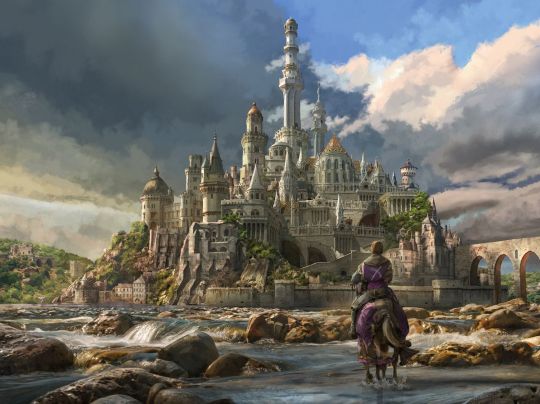
(c) Eddie Mendoza for the cover of A Song of Ice and Fire 2025 Calendar
under the cut because i'm crazy
i don't know if the books are ever going to make clear what happened at the toj-starfall zone but we can be sure only that ned went from one to the other with lyanna's bones and supposedly baby jon to return dawn to the daynes. ashara had a baby of father unknown and shortly after ned was there she took her own life, body never found. i go back and forward in thinking if ashara's brother lord dayne was there with her when ned went or if he was one of the dornish commanders defending the targs. in any case, his presence was completely zero during this time so i think he was too injured for a time or too sickly in general to do something to reestablish the dayne name in dorne after arthur being an important part in elia's disgrace and indirectly, her murder.
because yeah after arthur and ashara's death and going by the books there is zero mention of them, even in the chapters set in dorne or others about dornish characters make no mention of them. and it's strange considering that when you read awoiaf and f&b, the daynes are The knights of dorne. queen nymeria marries a dayne, sends a starfall king to the wall, meria martell commands a dayne to burn oldtown, arguably one of the most powerful cities of the time, out of all the sons of daeron ii and myriah martell, maekar marries a dayne, the only dornish lady. it could be nothing OR something but i think it does mean something. we see there's no daynes in oberyn's party in kl or speculation in general about the new sword of the morning beyond remembering dear old arthur. they've fallen completely into obscurity. the house was reduced to a young girl and its child lord.
edric's dad dies before agot (he doesn't seem to afflicted by his death when he meets arya if he were less than a year dead, inheriting the lordship at such a young age would've been dramatic to him), i would say just after becoming a page to beric dondarrion at 7 yo and i headcanon the marriage between beric and allyria was brokered at this time too. this was part of a fic i was writing like 500 years ago but i think lord dayne must have known he would not live too long, not to see edric grow so he must have looked for someone to prepare and take care of allyria and edric after he died. betrothing allyria to a marcher lord is......strange. if a dornish person would have to be married to someone it would go like this 1) not from the reach 2) not from the marches in that order, there is too much bad blood. the daynes have a longstanding tradition of killing oakhearts so marrying allyria to the heir of blackhaven and giving him his only heir, lord dayne entrusted a complete stranger with the future of his house.
beric would've been in charge of teaching young edric just about everything. he would be living in the stormlands for almost half his live, learning from a his maester and how to govern a stormlands' castle. meanwhile, allyria in a few years probably around agot time would be ready to marry beric when she reached her majority. she would've been the defacto ruler of starfall in edric's name when lord dayne dies, i think the idea was to swap when edric gained his spurs: he would return to starfall after a successful run as a tourney knight, probably gaining some recognition from whatever beric was tasked with at the capital (rip king) and then accompany allyria to be married to his knight master. andddd fin.
the thing is. allyria being so young during the rebellion, lord dayne absence for whatever reason and then dying, let the younger members with no connections in the wider dorne political context. it is said young children go to the water gardens and it's fun yeah but it's def a starting point for politics for many lords. it's close to the martells and it's an opportunity to make friends with future rulers, /everyone/ is going. the daynes didn't have this. allyria was probably very young when the rebellion happened (i think no older than 5) and for obvious reasons she was not sent to the water gardens; as for ned, i think lord dayne could not secure an invitation, this or he died too early to even try. if allyria had gone, she would've been for sure one of arianne's companions, she has both the breeding and the standing, but NOT and it's crucial, the reputation. see what arianne has to say in affc about gerold's standing:
"He is highborn enough to make a worthy consort, she thought. Father would question my good sense, but our children would be as beautiful as dragonlords."
it's must be passé to associate with the daynes at this point. think of the conningtons losing all standing when joncon lost the battle and was exiled.
in any case, allyria, more than edric, grew in obscurity. as of the books she's betrothed to a marcher lord nobody knows if he's alive or dead, has a missing nephew and it's in charge of one of the most ancient first men houses of westeros. sad! at least ned is having more fun. which leads me to darkstar. i see his thirst to prove himself, his notoriety as a cruel knight as another way to separate himself from what the main branch has fallen into. he is in his twenties so he was probably affected by the same dark cloud as the others.
"If I led a quarter of a million men to death, would they call me Gerold the Great? I shall remain Darkstar, I think. At least it is mine own."
he wants to have what arthur had, but not be the sword of the morning, he wants something that it's his own, as he says. he may want the sword and the fame like arthur, but not to be associated with another's bad luck so to speak. it's very telling that he's called one of "the most dangerous man in dorne" and what is the sword of the morning if not this? he's a dark mirror of the daynes pre rebellion, just like allyria would've been a renown beauty just like ashara is she wasn't cloistered. something something gerold and allyria as mirrors of what could've happened to ashara and arthur if they hadn't the protection of the monarchy.
i once read gerold is meant to have young ned's plot after germ scrapped the five year time skip and i think this is half true. i do think there is something to be done about dawn the sword and i think gerold is going to steal it and do something with it, something ned can't do because he's /still/ in the riverlands. i don't know what but i think it ties nicely with the theme of deconstructing the noble knight archetype. arthur is only great because he knew how to kill.
writing this i had a breakdown about the parallels between arthur and gerold
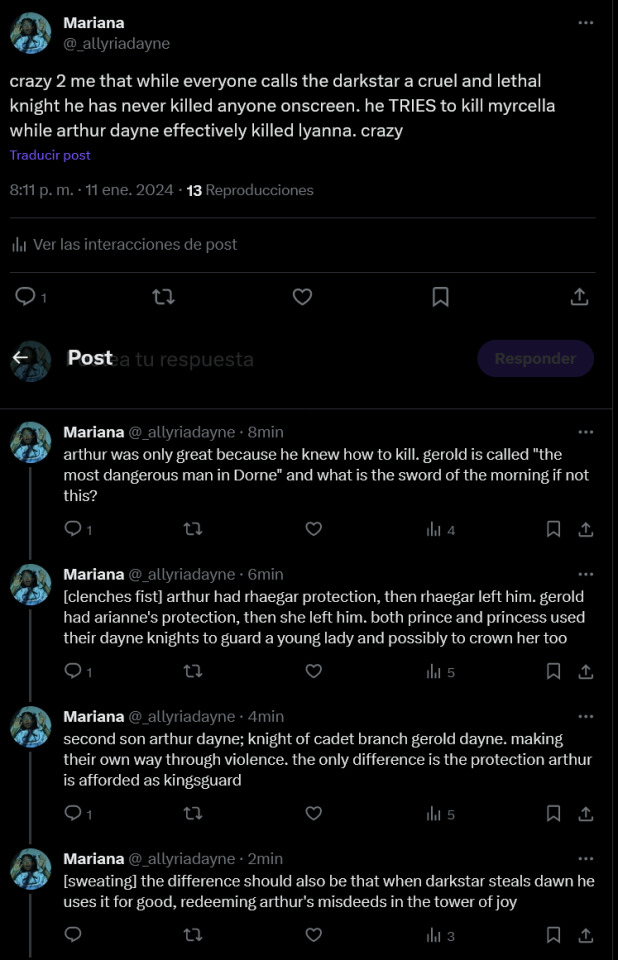
to finish this rambling i want to say my hopes for house dayne in what is left of asoiaf is 1) ned alive 2) gerold steals dawn 3) and like. something. honestly i will take anything at this point about allyria. DOES SHE EVEN KNOW? my poor girl and 4) if germ wants to clear the toj situation then it's fine.
thanks for asking and to anyone reaching this point lol. this is mostly general but if you want to talk about anything specific just message me! k thx muah!
#ask#Anonymous#allyria dayne#gerold dayne#edric dayne#ashara dayne#arthur dayne#house dayne#fallen and reborn#valyrianscrolls#let's give darkstar dawn i want to see something funny#all this to say 'which could mean nothing'#[keeps opening more gdox about gerold and allyria meeting]#just had to post this it's been HOURS
131 notes
·
View notes
Text
My thoughts on S3 of Merlin
aka me breaking down the characters this season cause that's how my brain works
Morgana- I've got mixed feelings. On one hand, I love seeing her grow into her identity with magic and be "evil" but I do miss her kindness. She has wanted to kill Merlin, Arthur, and Gwen multiple times and has become obsessed with power. But, her anger towards Uther is very fair.
Uther - This slime ball keeps getting chances to live that he doesn't deserve and quite frankly, I'm a bit sick of it. As Merlin pointed out, Uther is a huge hypocrite when it comes to magic. Also I hate that his first reaction to Alice using magic to HEAL people is that she needs to be killed. And it was revealed this season he cheated on his wife, as if I needed another reason to hate him. I hope he dies soon.
Merlin - my sweet boy, he's my favorite character. I love his kindness and effort to see the best in everyone. I also liked his moments with magical figures, like the fisher king and the king in the crystal cave. There's a sense of guidance and peace in those scenes. I think his relationship with the Dragon has changed too. They seem to respect each other more. I also love Merlin's banter with Gwaine, they've got a similar sense of humor. I really want him to tell Arthur about his magic and just list all the times he's saved him.
Arthur - He's so noble and genuinely cares about his people. His unwavering loyalty to his father is slightly annoying but that's the type of person Arthur is, loyal to a fault. I loved the episode when he and Gwen's love was discovered, Arthur's fierceness to protect her was great.
Gwen - She's also a very kind character. My poor girl had to get kidnapped AGAIN this season. I liked seeing her relationship with her brother. I am a bit worried about things now that Lancelot is back.
Gwaine- I really like his character; he's fun. I like how he's just willing to help Merlin and Arthur with whatever quest they're on because they're his friends and he has nothing better to do.
Cenred - I was mad when he was killed by Morgause. I figured it was going to happen but I wanted him to have more interactions with our main characters because he's this character that radiates evil and maliciousness that's very captivating to watch.
Tagging: @gay-for-zoya and @swans-chirping-in-the-distance
25 notes
·
View notes
Text
Why I think the character Kayne from the Malevolent podcast is Nyarlathotep.
Okay, so obviously Malevolent follows lovecrafitan logic. So let's look into that Lore.
*Spoiler warning up to episode 31*
Malevolent is heavily inspired Lovecraftian lore. With a heavy focus on The King in Yellow, as well as minor influences from The Black Stone, The Dream Cycle and others, the supernatural of the world generally has roots in HP. Lovecraft's universe. So, when it comes to unknown characters such as Kayne, listeners can't help but dissect the entity in hopes of figuring out motives as well as possible plot progressions. Following this mindset, one can only hope but wonder what it might mean to draw comparisons to Nyarlathotep. Nyarlathotep (aka the Crawling Chaos) is one of the primary antagonist in the Lovecraftian universe. He doesn't really have a reason for his "villianry", apart from having an amoral perspective, a sadistic personality, and a desire to manipulate those around him, he generally just follows the will of his father, the blind god, Azathoth. However, in his spare time he is often seen manipulating and deceiving humans for personal pleasure, often choosing to toy with them or drive them insane. Although Kayne seems to fit this bill, being the epitome of toying with people and unhinged insanity let's talk specifics parallels.
Seven Million Voices & Two Heads
In episode twenty, in a joking maner, Kayne hands Arthur (the protagonist) a coin, and states the following: "Look, I often wish I had two voices in my head Instead of, like, seven million? But when all is said and done, you can always flip a coin. Two heads and all that." At first, this sentence may seem like just another deliriously random thought spewing from Kayne's mouth but upon further investigation, we can assume that this quote is some foreshadowing into future plot points or a Nyarlathotep reveal. It is important to note in art and imagery it is not uncommon for Nyarlathotep to be depicted with two heads. This displays interesting connotations because it implies that Kayne was acknowledging that his human form is not his true form, and instead a disguise which like Nyarlathotep he often wears. This is important knowledge as Nyarlathotep is the only "other god" (powerful lovecraftian beings) that can wear a human mask. Furthermore, Nyarlathotep is also able to create avatars/minions to follow him and he communicates with them telepathically. This would likely feed into Kayne's numerous voices in his head.
Travelling the Planes
Unlike most gods, both Kayne and Nyarlathotep alike are easily able to travel through dimensions/worlds/planes. Nyarlathotep often is depicted as being able to exist "beyond the archetypal infinity", existing across every and any plane at all times. Kayne follows this pattern as we see him both The King in Yellow's city, found within the dreamlands in episode twenty, and in the mines on earth in episode twenty-eight, despite it causing other gods like The King in Yellow to break apart and split.
Biblical Imagery
Its important to note that althought unintended, Nyarlathotep is often seen as a the twisted version of Jesus Christ, or even depicted as the devil. This is because as Sigmund Freud states, interpretation of the text belongs to the reader, and offers a psychoanalytical insight into ourselves by what we understand from it. So, existing in a predominantly Christian dominated world, it makes sense that critics and fans alike have made the comparisons.
Nyarlathotep is the son of the blind God; Azathoth, sent to be his messenger and do his bidding on Earth, similarly to how Jesus was sent to earth to do the biding of his father. It's quite easy to bounce the idea of Jesus and Nyarlathotep off one another, with Nyarlathotep being to destruction as Jesus is to being a saviour. Looking at Kayne, the same can be applied, we can acknowledge the destructive nature of his being but also compare the significance of his appearance. Walking around with bare feet and hands, drenched in blood that would not stop, could easily be seen as a direct parallel to Jesus' own injuries post crusifiction. Plus there's the fact that in response to John's "Jesus Fucking Christ" swear, Kayne responded with "Present and accounted for!", something that could have been just a delusional quip but in light of everything else seems suspicious.
But what about the devil? Surely a character of evil nature should be attributed to him and well yes, while Nyarlathotep is also depicted as the devil, its interesting to instead see Lucifer and Jesus as two sides of the same coin, or as Kayne earlier said; "two heads". I could dwell on philosophy, discussing the significance between cultural understanding and the tradgey in Lucifers tale, which depicts him more as a victim that a villian, but that tangent would take me far to much of track so instead I skip to the parallel with the devil. In the bible, Earth was called lucifer's domain. He had primary influence, and as such the heavans took drastic measures to ensure there were ways to combat it. They realised fighting on his turf was to strong, so god sent his only son to create a gateway out of his domain without the cost. This had to happen because Lucifer walked amongst the humans when others could not, he would whisper into their minds, corrupting them to sin and puppeteering them into madness. When it comes to lovecraftian lore, Nyarlathotep essentially did the same. He was known to have the most powerful influence over earth compared to all the other gods, he whispered into their minds and constantly drove humans insane. This is something that Kayne implicated he had the power to do. Kayne stated that compared to John/ The King in Yellow, He is more powerful, especially using mortal understanding. He was able to exist on earth because it was his domain and considering his relationship with sanity, it hardly seems unjustified to do this comparison.
Also its important to note, Lilith is refferenced as having a close relationship with Kayne and in Lovecraftian Lore. She is Nyarlathotep's daughter.
Faustian Comparisons
Apart from Lovecraft, Malevolent takes inspiration from many other sources such as Robert Frost, William Ernest Henley and most significantly Faustian folklore. With the podcast following a similar premise to the tale (man with a dead wife, drowned child, combats irredeemable guilt by making a deal with a demon), it makes sense that Kayne and Nyarlathotep would hold comparison to the main demonic being; Mephistopheles. All three entities maintain a chaotic, trickster based personality, inspired by their willingness to play and trick humans. Mephistopheles takes this further, using contracts and deals to delude. In the episode Coda, Kayne mirrors this by offering Arthur (Our Faust counterpart) a deal, allowing him to retrieve part of The King in Yellow for himself. As the deal-maker Kayne manipulates Arthur, pressuring him into a deal in which the fine print is hidden just as Mephistopheles does to Faust. So we can only presume Arthur will meet a similar demise at Kayne's hand as Faust met at Mephistopheles.
TLDR: All in all, if Kayne is supposed to Nyarlathotep, who is essentially the antithesis of Jesus Christ. I reckon we have an interesting story ahead of ourselves. Especially considering the Faustian inspiration practically guarantees tragedy
#nyarlathotep#lovecraftian#hp lovecraft#malevolent podcast#kayne malevolent#the king in yellow#religious#religious imagery#lucifer#comparison#mini essay#azathoth#Mephistopheles#harlan guthrie
193 notes
·
View notes
Text
‘Pimpernel of the Hellenes’, ‘Major Paddy’, ‘Enchanted maniac’: Will the real Paddy Leigh Fermor please stand up?
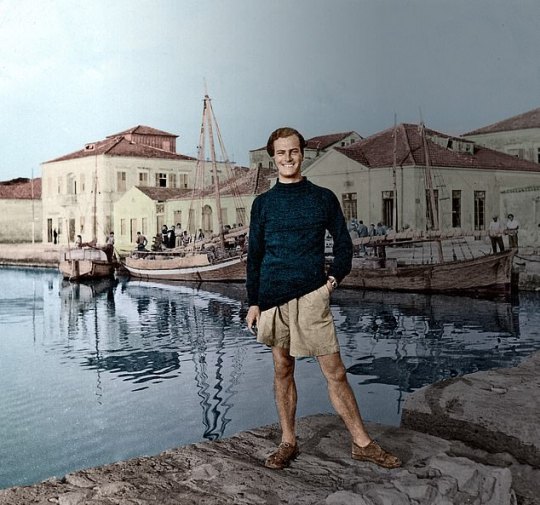
Paradox reconciles all contradictions. - Patrick Leigh Fermor
So one evening I was baby sitting my nephews and nieces here in our family chalet in Verbier, high up in the Swiss Alps. It was my turn to baby sit as the rest of my family enjoyed the fantastic classical music concerts and events showcased at the two week long Verbier 30th Festival. The little scamps had gone to bed and my father and I watched an old British war movie on DVD, ‘Ill Met By Moonlight’ (1957). It was filmed by the legendary team of Michael Powell and Emeric Pressburger based on the 1950 book ‘Ill Met by Moonlight: The Abduction of General Kreipe’ by W. Stanley Moss.
I’ve seen the film a couple of times before, but until now never really paid attention to where the title came from. My father said it was from Shakespeare’s ‘A Midsummer’s Night’s Dream’ And so it was. In the play, Oberon, the king of the fairies and the Queen are having a fairly bitter drawn-out fight over custody of a changeling Indian child, and this is how the pissed off king greets the queen when they run into each other, “Ill met by moonlight, proud Titania”. Oberon is basically saying "Oh Lord, it's you..." and Titania's response is basically a flippant middle finger. One of the best modern reasons to read Shakespeare: to throw playful erudite shade at others.
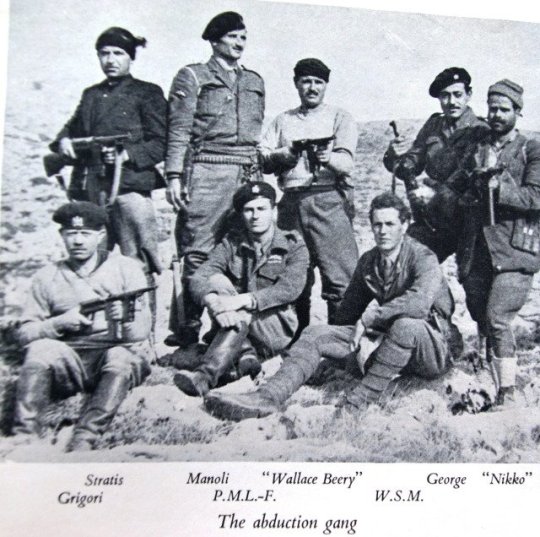
Anyway, the historical background of the film is the German invasion of Crete in May 1941. After an intense ten-day battle, Allied troops were driven back across the island, and many were evacuated from beaches along the southern coast. Some Cretans and British officers took to the mountains to organise resistance against the occupying forces. The German occupation that followed was especially brutal. Dreadful reprisals followed every act of resistance. The German commander, General Müller, insisted on taking 50 Cretan lives for every German soldier killed; he became known as ‘The Butcher of Crete’.
As a Classicist side note, there had been a close association between Britain and Crete since the early 20th century, when archaeologist Sir Arthur Evans had uncovered the sensational remains of a Minoan palace at Knossos. The headquarters of the British archaeological school in Crete was a large villa alongside the site, known as Villa Ariadne. Several archaeologists, who knew the island and its people well, went underground after the German occupation to aid the Cretan resistance. Continuing in this tradition, scholar and travel-writer Patrick Leigh Fermor, who had got to know Greece in the 1930s, joined the Special Operations Executive (SOE).
During the German occupation, Major Paddy Leigh Fermor travelled to Crete three times to help organise local resistance against the hated German occupation. On the third occasion, in February 1944, he was parachuted in with a specific mission to kidnap German commander General Müller, to boost morale on Crete along with his erstwhile SOE comrade Capt. W. Stanley Moss MC (aka Billy Moss) of the Coldstream Guards. However, just after they parachute in, General Müller was replaced by General Heinrich Kreipe, who transferred from the Russian Front. Thinking that capturing one general was as good as another, Fermor merrily go ahead with the daring kidnap operation.
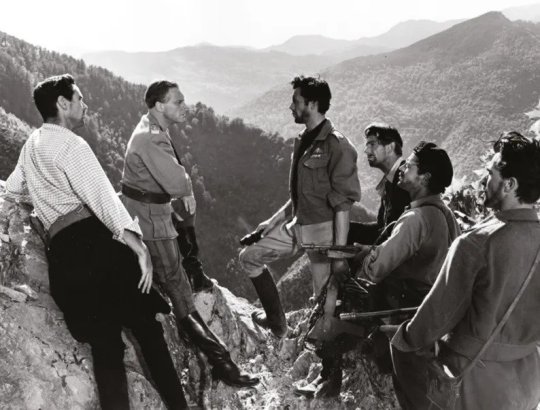
It’s at this point that the narrative of Michael Powell and Emeric Pressburger’s ‘Ill Met by Moonlight’ (1957) picks up. Dirk Bogarde plays Paddy Leigh Fermor, David Oxley plays Moss, and Marius Goring plays the taciturn German paratroop general. Blink and you’ll miss the late great Christopher Lee making a cameo appearance as a German officer in the dentist’s room scene.
The film naturally takes some liberty with the facts but it’s a cracking yarn of high adventure and drama. Xan Fielding, a close friend of Leigh Fermor from the SOE in Cairo, was taken on as technical adviser. The fact the film was shot in in the Alpes-Maritimes in France and Italy, and on the Côte d'Azur in France, far away from the craggy valleys and mountains of Crete itself. The director Michael Powell spent some time walking in Crete to get to know the island, but decided that, with the confused and volatile state of Greek politics, it was not suitable to film there.

Looking back years after he had directed it Powell didn’t think much of his own film. By contrast, Paddy Leigh Fermor, who was on set throughout the film shoot, was very happy with Bogarde’s portrayal of him with Byronic glamour. Watching the movie again ‘Ill Met by Moonlight’ remains a classic and stands out from many British war films of the 1950s because of its realism. The British SOE men and the Cretan guerrillas look absolutely right for their parts. It is dramatic and full of suspense while filled with much boyish humour.
I was disappointed with one notable omission in the film that did happen in real life. According to Patrick Leigh Fermor, at dawn one day during the journey across the mountains, General Kreipe was looking at the mist rising from Mount Ida and began to recite, in Latin, the opening lines of Horace’s ninth ode:
Vides ut alta stet nive candidum Soracte nec iam sustineant onus silvae laborantes geluque flumina constiterint acuto?
Behold yon Mountains hoary height, Made higher with new Mounts of Snow; Again behold the Winters weight Oppress the lab’ring Woods below: And Streams, with Icy fetters bound, Benum’d and crampt to solid Ground
(John Dryden 1685)
Leigh Fermor picked up on the General, and recited the remaining stanzas of the Ode. ‘Ach so, Herr Major,’ said Kreipe when Leigh Fermor had finished. Both men were amazed to realise they shared a classical education and a love of ancient Latin poetry.
Leigh Fermor later wrote that it was as though the war had ceased to exist for a moment, as ‘We had both drunk from the same fountains before.’ It brought captor and captive together with a strange bond. The scene was not reproduced in the film, as Powell and Pressburger probably thought it would make the men sound too academic for a popular cinema audience.
Leigh Fermor and Kreipe met again in the early 1970s, on a Greek television show, and got on famously together. The General said Leigh Fermor had treated him chivalrously as a captive. They remained friends until Kreipe’s death.
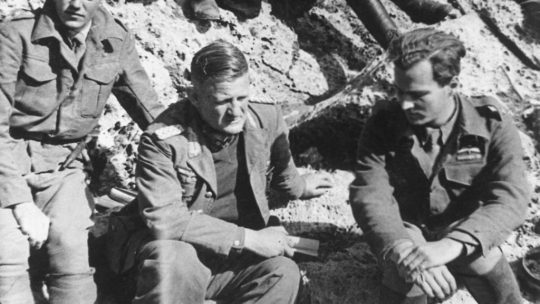
After sharing a late night drink with my father after the film, I began to muse on the figure of Paddy Leigh Fermor, a family friend and someone I met along with his wife, Joan, as a little girl. My grandparents, and especially my grandmother, knew Paddy briefly from their days during and after the Second World War.
My father shared a few stories about him when he and my mother visited his beautiful home in Greece, where even at his advanced age he remained the most generous of hosts and the most outrageous flirt.
One of my memories was getting into his battered old Peugeot in the drive way and trying to drive it when my feet could barely touch the pedals. It wouldn’t have mattered in any case as the brakes didn’t work as he cheerfully said later as we careened around a dirt road to go around the mountains for a drive.
Many years later in April 2022, I tried to visit the home of the late Patrick and Joan Leigh Fermor - a sort of pristine shrine to their memory that one can also stay in any of the rooms as a vacation rental - in the coastal fishing village of Kadarmyli in the Peloponnese, as part of a hiking and mountaineering sojourn around Greece with ex-Army friends. We couldn’t stay there as it was already rented out to other guests, and so we stayed higher up the mountain in a villa, but we swam in front of the Fermor’s home which was on the water’s edge.
You could never put your finger on Paddy Leigh Fermor. He hid behind his gift for telling yarns, and pulling Ancient Greek verses out of the thin air, as well as boisterously singing local Greek songs with a drink in his hand.
Even after his death in 2011, the question keeps nagging as to who was Paddy Leigh Fermor?
The Dirk Bogarde film too seems to ask, who exactly is the ‘real’ Patrick Leigh Fermor - or the real anyone? Taking its title from a Shakespearian play concerned with dreams and disguises, magic and power, ‘Ill Met By Moonlight’ is all about questions of identity.
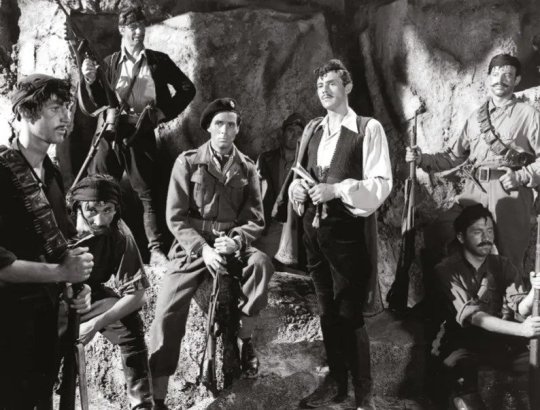
Under the film credits, we see Dirk Bogarde in uniform; then, unexpectedly, we see him in the flamboyant outfit of a Cretan hill-bandit. A title informs us that Major Leigh Fermor was also known by the Greek code-name “Philidem.” In other words, there are two of him (at least), and on one level the adventure the film is about to unfold reflects a conflict in his personality. It’s a conflict shared, unknowingly, by his Nazi opposite number, the fierce, arrogant General Kreipe (an unlikely “proud Titania,” but it’s true that he “with a monster is in love” – the monster of Nazism). Kreipe’s human side is so rigorously repressed by the demands of war and “glory” that he is genuinely unaware of it; ironically, this humanness, which constitutes the true manhood of this Teuton warrior, is revealed by a boy (equivalent to Shakespeare’s Indian Prince?) - who, in turn, is the most grown up person in the movie.
If “Philidem” appears under the credits, caped and open-shirted, a romantic dream-figure out of an operetta or a storybook, he is first seen in the film proper as a coarser, more down-to-earth version of the same thing – an ordinary Cretan peasant in a shabby suit, waiting for a bus. When he makes contact with the Resistance, his personality fragments further.
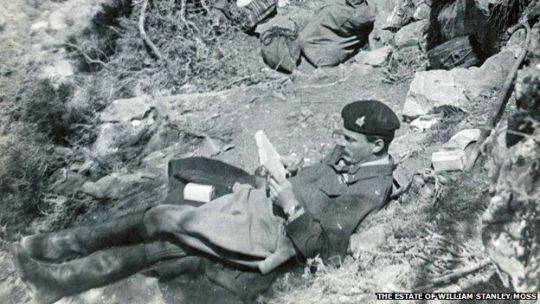
To some, he is the mystical Philidem, Pimpernel of the Hellenes and righter of wrongs. To others he is “Major Paddy,” the happy-go-lucky Englishman of popular movie myth conducting war as if it were a branch of amateur theatricals, a gentleman adventurer relying on breeding to get him through and making fun of the whole business. To Bill Moss (David Oxley), the newly arrived junior officer sent to assist him, he is the cool, fast-thinking professional soldier. And to himself? In his quietly passionate defence of Cretan life and culture, he seems someone else again: a scholar and aesthete outraged by the barbarism and folly of war, and by the moronic arrogance shown by his captive toward the Cretan people.
Whatever his persona, Leigh Fermor is a chameleon who never seems to change very radically in himself. Perhaps because he has this quality of seeming all things to all men – and being those things - he remains unfazed by the monolithic might of the German military machine. Fluent in Greek, he can also speak German like a German and is easily able to assume another disguise, that of a faceless Nazi officer. Although he and Moss make fun of themselves - “If only I had a monocle!” muses Moss when Leigh Fermor tells him he “looks like an Englishman dressed like a German, leaning against the Ritz bar” - they are able to effect the kidnapping with an ease that seems appropriately Puckish. General Kreipe is ignominiously thrust onto the floor of his own limousine, gagged, and sat upon by a couple of the peasants he so despises. Kreipe’s rage is compounded by his firm conviction that he has been snatched by “amateurs” - a belief Leigh Fermor and Moss slyly make no objection to, knowing how it will gnaw at his already shaky Master Race self-confidence.
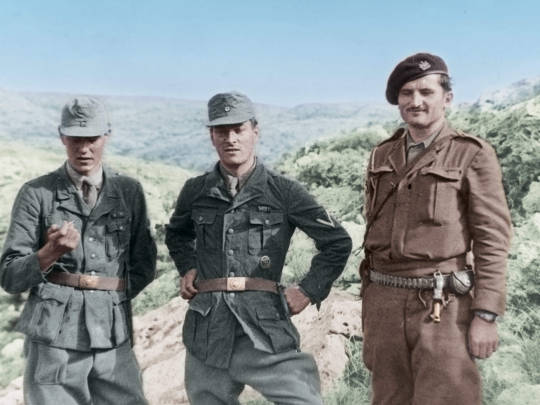
Patrick Leigh Fermor, aka Major Paddy, aka Philidem, in the film’s closing moments, is far from being self-assured intellectual or dashing amateur adventurer or legendary outlaw of the hills. He’s just a tired man who wants to go home and rest up. “How do you feel?” asks Moss. “Flat” is the reply. “You look flat!” says Moss. “I know how I’d like to look …” murmurs Leigh-Fermor wistfully. Moss knows what he’s going to say, and joins in the litany: “Like an Englishman dressed like an Englishman – and leaning against the Ritz bar!” It’s easy to imagine them ordering drinks at that renowned watering-hole with all the suavity required by this little fantasy.
Still, the film’s last images of Crete receding in the distance, until all we can see is the sea, suggests that maybe Major Paddy’s heart is really back in those hills in the “fair and fertile” land that has become as much a Powellian landscape of the mind for us as the studio-built Himalayan convent of ‘Black Narcissus’ or the monochrome Heaven of ‘A Matter of Life and Death’. And, as the film POV closing shots departs both Crete and this film, I began to think that being “dressed like an Englishman and leaning against the Ritz bar” would, for Patrick Leigh Fermor constitute yet another disguise. After all, he said he was of Irish aristocratic stock.
Traveller and writer Paddy Leigh Fermor is best known for two events. He’s known for leading the commando group in occupied Crete to kidnap General Kreipe. But he is also known for the boy who, at a mere 18 years old, set off with little money and a lot of nerve in 1933 to walk from the Hook of Holland to Constantinople.
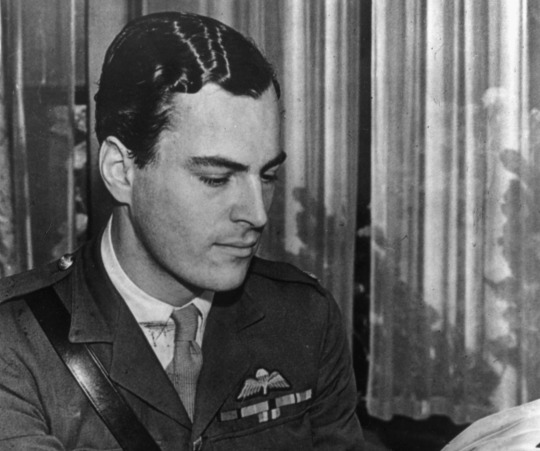
Patrick Leigh Fermor was, in the words of one of his obituaries, a cross between Indiana Jones, James Bond and Graham Greene. Self-reliance and derring-do were lessons learnt from the cradle. When Fermor’s geologist father was posted to India, he and his wife left the infant with family in Northamptonshire and did not return until his fourth birthday. In retrospect, he took great delight in being sent to a school for difficult children and getting himself expelled from the King’s School, Canterbury, when he was caught holding hands with a greengrocer’s daughter eight years his senior. His school report infamously judged him ‘a dangerous mix of sophistication and recklessness’.
Sharing a flat in Shepherd’s Market, one of Mayfair’s seedier corners, Leigh Fermor schooled himself in literature, history, Latin and Greek.
He honed his character with the company of extraordinary people and the words of great writers - he had a prodigious memory for prose as well as poetry. He befriended literary lions such as Sacheverell Sitwell, Evelyn Waugh and Nancy Mitford. His travels began aged ‘eighteen-and-three-quarters’ when he rejected Sandhurst Royal Military College in order to walk the length of Europe from Hook of Holland to Constantinople. He took with him Horace’s Odes and the Oxford Book of Verse though Leigh Fermor could recite Shakespeare soliloquies, Marlowe speeches, Keats’s Odes and as he modestly put it ‘the usual pieces of Tennyson, Browning and Coleridge’ from memory.
Leigh Fermor was then a self-made man in the most literal sense.

Setting off from England in 1933, Fermor resolved to traverse Europe living like a hermit; sleeping in bars and begging for food. But his manly charms and boyish good looks found him being passed like a favourite godson from Schloss to palace by European nobility and he developed a lifelong penchant for aristocratic company. I his own words, ‘In Hungary, I borrowed a horse, then plunged into Transylvania; from Romania on into Bulgaria’. Having reached Constantinople in January 1935, Fermor continued to explore Greece where he fought on the royalist side in Macedonia quelling a republican revolution. In Athens Leigh Fermor met Balasha Cantacuzene, a Romanian countess with whom he fell in love. They were living together in a Moldovan castle when World War Two was declared.
Fluent in Greek, Leigh Fermor was posted as a liaison officer in Albania. Recruited as a Special Operations Executive (SOE), he was shipped from Cairo to German-occupied Crete where he lived disguised as a shepherd in the mountains for two years. On his third expedition to Crete in 1944, Leigh Fermor was parachuted alone onto the island and made connections in the Cretan resistance movement. While waiting for his compatriot Captain Bill Stanley Moss to land by water from Cairo, Leigh Fermor hatched a plot to kidnap German Commander General Heinrich Krieple. He liaised comfortably with Cretan partisans and bandits to pull off one of the war’s greatest coups de théâtre.
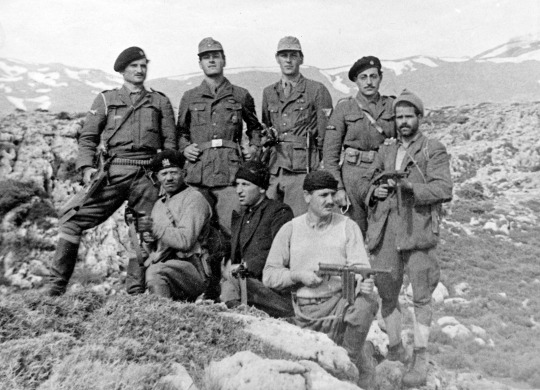
Disguised as German soldiers, Leigh Fermor and Moss stopped Krieple’s car at an improvised check point en route back to Nazi HQ in Knossos. Abandoning the General’s car after a two-hour drive, Leigh Fermor left a note indicating that the kidnappers were British so that there wouldn’t be reprisals against Cretan nationals. When the abduction of the unpopular commander was discovered, a German officer in Heraklion allegedly said ‘well, gentlemen, I think this calls for champagne’. It turns out that General Kreipe was despised by his own soldiers because, amongst other things, he objected to the stopping of his own vehicle for checking in compliance with his commands concerning approved travel orders. It’s why for instance the German troops, both in the film and in real life, dare not stop the General’s car as it drove through the check points at Heraklion.
Krieple was evacuated and taken to Cairo and Leigh Fermor entered the annals of World War Two’s most devil-may-care heroes. With characteristic panache, when he was demobbed Leigh Fermor moved into an attic room at the Ritz paying half a guinea a night. But his first travel book, ‘The Traveller’s Tree’, was not about the European odyssey or the Cretan escapades and centred on Leigh Fermor’s adventures in the Carribbean. Published in 1950, ‘The Traveller’s Tree’ was an inspiration for Ian Fleming’s second James Bond novel ‘Live and Let Die’ (1954).
As a host and house guest, Paddy Leigh Fermor was much sought-after. At one of his parties in Cairo, he counted nine crowned heads. He was a confirmed two-gin-and-tonics before lunch man and smoked eighty to 100 cigarettes a day. His party pieces included singing ‘It’s a Long Way to Tipperary’ in Hindustani and reciting ‘The Walrus and the Carpenter’ backwards. In Cyprus while staying with Laurence Durrell, Leigh Fermor apparently stunned crowds in Bella Pais into silence by singing folk songs in perfect Cretan dialect. As Durrell wrote in ‘Bitter Lemons’ (1957), ‘it is as if they want to embrace Paddy wherever he goes’.
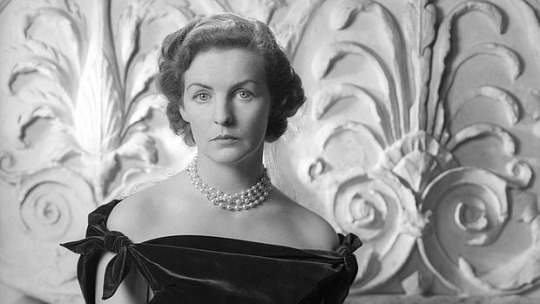
He struck up a partiuclar friendship with the famous Mitford sisters, especially Deborah Mitford, later ‘Debo’, the Duchess of Devonshire. It was at the Devonshires’ Irish estate Lismore Castle that ‘Darling Debo’ and ‘Darling Pad’ met and began to correspond. A characteristic letter from the Duchess in 1962 reads ‘The dear old President (JFK) phoned the other day. First question was ‘Who’ve you got with you, Paddy?” He’s got you on the brain’ to which Fermor replies of a broken wrist ‘Balinese dancing’s out, for a start; so, should I ever succeed to a throne, is holding an orb. The other drawbacks will surface with time’.
After the war he travelled widely but was always drawn back to Greece. He built a house on the Mani peninsula - which had been, significantly, the only part of Magna Graecia to resist Ottoman colonisation since the fall of Constantinople in 1453. Before his death in 2011 at the age of 96, he wrote some of the most acclaimed travel books of the 20th century.
His books contain some of the finest prose writing of the past century and disprove Wilde's maxim that "it is better to have a permanent income than to be fascinating".
Charm, self-taught knowledge and enthusiasm made up for the lack of a university degree or a private income. His teenage walk across Europe and subsequent romantic sojourn in Baleni, Romania, with Princess Balasha Cantacuzene are proof enough of that. But the difficulty of capturing such an unconventional and glamorous life is made harder by the certainty that Fermor was an unreliable narrator.
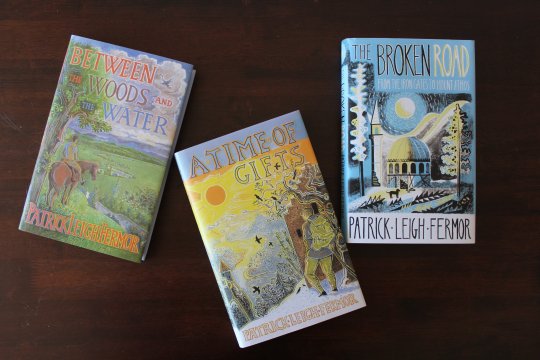
He was also an infuriatingly slow writer. Driven by a life-long passion for words yet hampered by anxiety about his abilities, Leigh Fermor published eight books over 41 years.
‘The Traveller's Tree’ describes his postwar journey through the Caribbean; ‘Mani‘ and ‘Roumeli’ (1958 and 1966) draw on his experiences in Greece, where he would live for much of the latter part of his life. But it is the books that came out of his trans-Europe walk that reveal both the brilliance and the flaws. ‘A Time of Gifts’ was published in 1977, 44 years after he set out on the journey. ‘Between the Woods and the Water’ appeared nine years later. Both describe a world of privilege and poverty, communism and the rising tide of Nazism, and end with the unequivocal words, "To be continued". Yet the third volume hung like an albatross around the author's neck. As the years passed, Fermor found it impossible to shape the last part of his story in the way he wanted.
Leigh Fermor was that rarest of men: a man determined to live on his own terms, if not his own means, and who mostly - and mostly magnificently - succeeded. Always popping off on a journey when he should have been writing about the last one, always ready to party, he was forever chasing beautiful, fascinating or powerful women, even when with his wife, Joan Raynor. She was the great facilitator who funded his passion for travel and writing, as well as women, from her trust fund. His love affairs were discreet but legendary.
Leigh Fermor was happiest among the rogues. Over a lifetime on the road, he sought them, and in turn they responded to his charm, nose for adventure, and his famous wit. He was a keenly-anticipated dinner guest - once outshining Richard Burton at a London society soirée, who he cut-off midway through a recital of ‘Hamlet’. As Richard Burton stormed out, the pleading society hostess said, “But Paddy’s a war hero!” to which Burton grouchily replied, “I don’t give a damn who he is!”
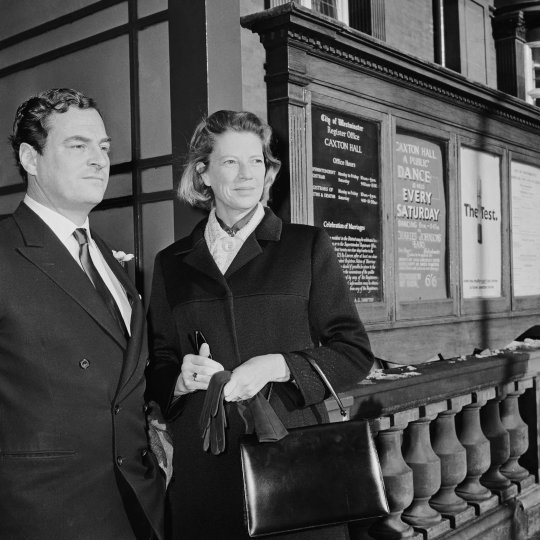
His partnership with and then marriage to Joan Raynor was an open relationship, at least on Leigh Fermor’s side. Paddy saw in Joan his kindred spirit. Like him, she spent much of her youth travelling to where she pleased; largely in France, where the photographer and literary critic Cyril Connolly became besotted by her. Joan was the daughter of Sir Bolton and Lady Eyres Monsell of Dumbleton Hall, Worcestershire. She was not only stunningly pretty but also 'a beautiful ideal, with the perfect bathing dress, the most lovely face, the most elaborate evening dress', as the Eton educated Connolly described her. Joan also stood out from the upper-class beauties of her day in that she supplemented her mean rich father's allowance by earning her living as a decent photographer.
In 1946, she met Leigh Fermor in Athens, while he was deputy director of the British Institute. Joan met him at a time when he was then in a relationship with a French woman called Denise, who was pregnant with his child, which she aborted. The pair would travel to the Caribbean together under the invitation of Greek photographer Costas, falling madly in love.
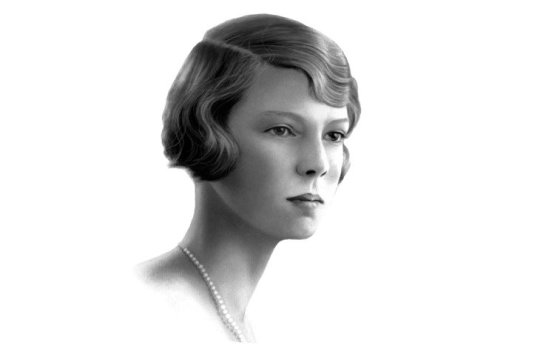
She was the only woman that - after decades of sexual scandals - matched his own erratic behaviour. Stories of how they dined fully-clothed in the Mediterranean, dragging a table into the sea, as well as their myriad cats and olive groves, paint a restless couple, who, when not out articulating the peoples of their adopted homeland, kept themselves very busy.
The attraction between Paddy and Joan was instant. So many love affairs that Paddy indulged in seemed about as brief as the flame from a burning envelope and you expected this one with Joan to be too. But somehow, miraculously, it lasts.
The two were apart a great deal, but in their case, absence did make the heart grow fonder. While Paddy was staying in a monastery in Normandy, supposed to be thinking monk-like thoughts that he would eventually put into his masterpiece A Time To Keep Silence, he was also writing sexy letters to Joan: 'At this distance you seem about as nearly perfect a human being as can be, my darling little wretch, so it's about time I was brought to my senses.' And: 'Don't run away with anyone or I'll come and cut your bloody throat.'
She tantalised him with descriptions of Cyril Connolly making passes at her; but she, like Denise, sounded a rather desperate note when she wrote: 'I got the curse so late this month I began to hope I was having a baby and that you would have to make it a legitimate little Fermor. All hopes ruined this morning.'
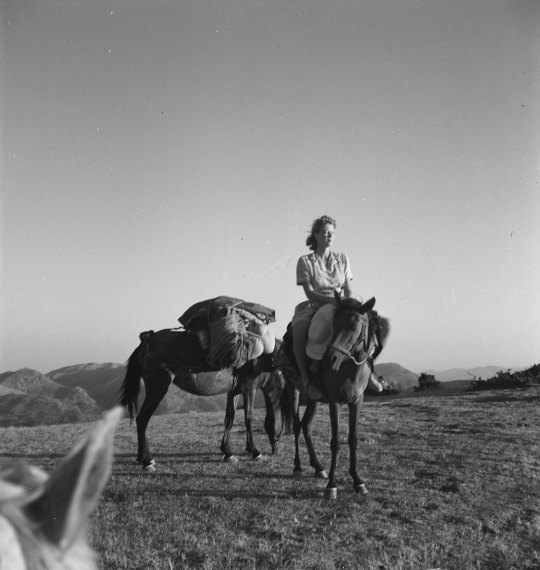
Fiercely independent - a trait that must have enamoured Paddy - they were best imagined as two pillars of a Greek temple, beside one-another but capable of holding up the roof of the world that they had built for themselves through the lens of ancient history and Hellenic culture. Indeed, it was said that they had a special ‘pact of liberty’. It is this unconquerable aura that led poet laureate John Betjeman to declare his love for her (he called her ‘Dotty’ and remarked that her eyes were as large as tennis balls). For Cyril Connolly, the photographer she shadowed, and with whom she had a scandalised affair during her first marriage, she was a “lovely boy-girl” and Laurence Durrell named her the ‘Corn Goddess’ because of her slender figure and short hair. But of all of these worthy candidates, it was the warrior-poet Patrick Leigh Fermor who finally won her heart.
To Joan, who described herself as a ‘lifelong loner’ in her diaries, her companionship with the uncomplicated Paddy was a relief. They had no children, nor did they want any - or so Paddy claimed. But those who knew Joan suspected she did want children but it never came to pass; and so she became a devoted aunt or dotted on other friends’ children. For both of them their dozens of cats gave them the next best thing to paternal satisfaction. Still, her morbid fascination with photographing cemeteries painted a much darker side.
Joan Raynor’s inheritance subsidised his peripatetic life at least until the enormous success of ‘A Time of Gifts’ in the late 1970s, which in turn created a new market for his previous volumes about Greece, ‘Mani’ and ‘Roumeli’.
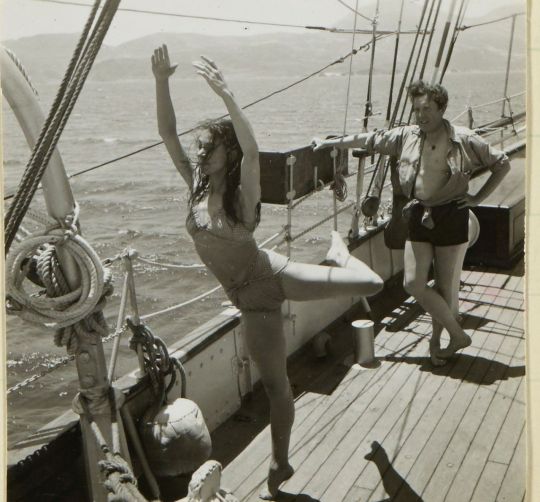
With Joan’s tacit consent, Paddy enjoyed amorous flings, discrete sexual affairs with high society women and sampled the low delights of the brothel. This activity rarely made it into his private letters, but the exceptions could be piquant. Writing in 1958 from Cameroon, where he was on the set of a John Huston movie, he told a (male) friend: “ Errol Flynn and I . . . sally forth into dark lanes of the town together on guilty excursions that remind me rather of old Greek days with you.” In a 1961 letter to the film director John Huston’s wife, Ricki, with whom Leigh Fermor had been having sex with (and would die in a car crash in 1969). “I say,” the passage begins, “what gloomy tidings about the CRABS! Could it be me?” Riffing on pubic lice and their crafty ways, he conjectures that, during a recent romp with an “old pal” in Paris, a force “must have landed” on him “and then lain up, seeing me merely as a stepping stone or a springboard to better things” - to Mrs. Huston, that is. As comic apologies for venereal infection go, the passage is surely a classic.
Like most high flying lives, it was far from blameless. Wounded women were littered in his wake. Some British visitors to Athens were less than impressed by this Englishman who posed as “more Greek than the Greeks”.
Some Greeks shared their disdain. Revisionist historians criticised his role in wartime Crete, and warned their fellow Hellenes that for all his fluency and charm, Leigh Fermor was no latter day Byron. His unoccupied car was blown up outside his Mani house, probably by members of the Greek Communist Party which he had vocally opposed. The accidental fatal shooting of a partisan in Crete led to a long blood feud which made it difficult for Leigh Fermor to re-enter the island until the 1970s, and possibly explains why he chose to settle in the Peloponnese rather than among the hills and harbours of his dreams.
His own books had already eclipsed those incidents, not only among readers of English but also in Greece, where in 2007 the government of his adopted land made him a Commander of the Order of the Phoenix for services to literature.
Travel writers such as the great Jan Morris have described Leigh Fermor as the master of their trade and its greatest exponent in the 20th century.
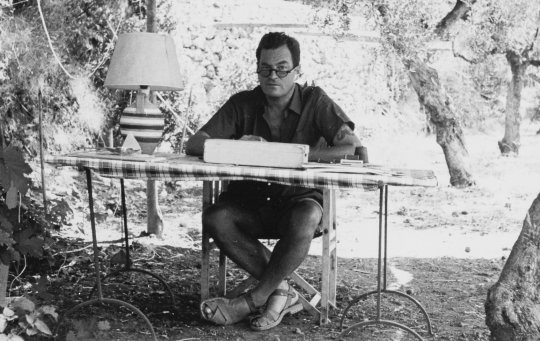
When ‘A Time of Gifts’ was published in 1977, Frederick Raphael wrote: “One feels he could not cross Oxford Street in less than two volumes; but then what volumes they would be!”
They are not for everyone. Leigh Fermor wrote that written English is a language whose Latinates need pegging down with simple Anglo-Saxonisms, and some feel that he personally could have made more and better use of the mallet. His exuberance is either captivating or florid. It is certainly unique among English prose styles.
Artemis Cooper, his patient and careful biographer wrote that “Paddy had found a way of writing that could deploy a lifetime’s reading and experience, while never losing sight of his ebullient, well-meaning and occasionally clumsy 18-year-old self … this was a wonderful way of disarming his readers, who would then be willing to follow him into the wildest fantasies and digressions”.
Those fantasies and digressions took decades to express. ‘A Time of Gifts’ had arguably been 40 years in the making when it was published in 1977. Its sequel, ‘Between the Woods and the Water’, did not appear until 1986. The third and final volume has been awaited ever since. Following Leigh Fermor’s death, a foot-high manuscript was apparently found on his desk.
Once he knuckled down to it, Leigh Fermor loved playing around with words. He was one of our greatest stylists and he was devoted to producing un-improvable books. But writing did not come easily to him, at least partly because it was something of a distraction from the main event, which was living an un-improvable life of unrepentant gaiety and fun.
For forty odd years, a legion of friends and admirers would beat a path to Paddy and Joan’s door. Artists, poets, royalty and writers came, all taking inspiration from their erudite hosts. A visit was an act of communion, a sharing of ideas and stories.
Leigh Fermor influenced a generation of British travel writers, including Bruce Chatwin, Colin Thubron, Philip Marsden, Nicholas Crane, Rory Stewart, and William Dalrymple. Indeed when Bruce Chatwin died, it was Paddy who scattered Chatwin’s ashes near a church in the mountains in Kardamyli.
When I was there in April 2022, I went to that same church to pay my respects.
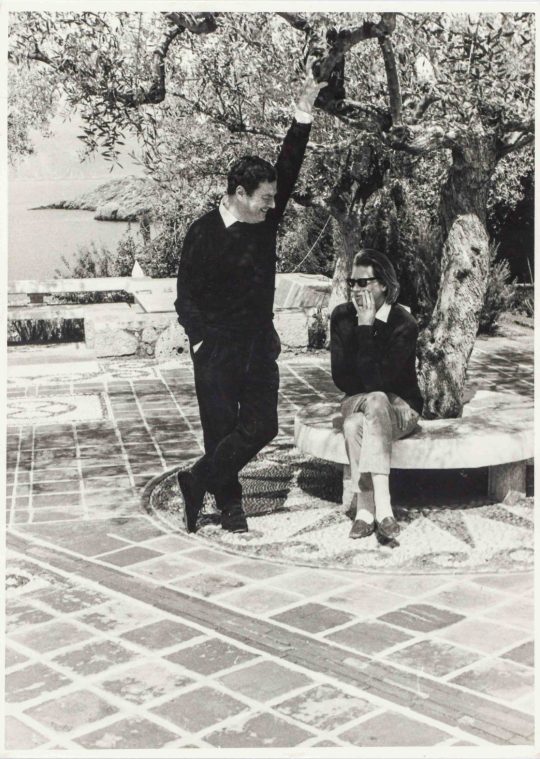
But some of Paddy’s life energy was sucked out of him when Joan died in Kardamyli in June 2003, aged 91. It was related that Joan said to her friend Olivia Stewart, who was visiting: 'I really would like to die but who'd look after Paddy?' Olivia said that she would. A few minutes later, Joan fell, hit her head - and died instantly of a brain haemorrhage. Joan had often quoted Rilke: 'The good marriage is one in which each appoints the other as guardian of his solitude.' Now Paddy Leigh Fermor was all alone.
Leigh Fermor was knighted in 2004, the day of his birthday which he delighted in like a giggling schoolboy. But he missed Joan terribly.
For the last few months of his life Leigh Fermor suffered from a cancerous tumour, and in early June 2011 he underwent a tracheotomy in Greece. As death was close, according to local Greek friends, he expressed a wish to visit England to bid goodbye to his friends, and then return to die in Kardamyli, though it is also stated that he actually wished to die in England and be buried next to his wife, Joan, in Dumbleton, Gloucestershire. He stayed on at Kardamyli until the 9th June 2011, when he left Greece for the last time. He died in England the following day, 10th June 2011, aged 96. It was reported that he had dined in full black tie on the evening of his death. Paddy had style even unto the end.
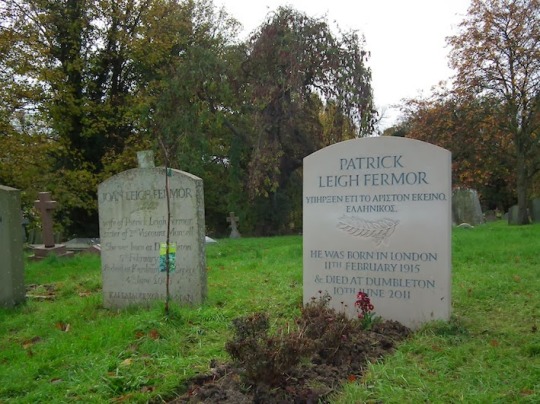
A Guard of Honour was formed by the Intelligence Corps and a bugler from his former regiment, the Irish Guards, delivered the ‘Last Post’ at Paddy’s funeral. As had been his wish, he was buried beside Joan. On his gravestone in Dumbleton cemetery is an inscription in Greek, a quote from Constantine Cavafy: “In addition, he was that best of all things, Hellenic.”
Although Joan had passed away at the age of ninety-one, after suffering a fall in the Mani. Her body was repatriated to Dumbleton, the place of her birth - ironic that her dream was to be as far as she could possibly go from the rolling humdrum Worcestershire hills. But perhaps she intended to return all along. When Paddy was buried beside her it seemed that the ‘pact of liberty’ that these two lonely souls had forged themselves could be tested in the great elsewhere. Joan was more than his muse (as many of her obituaries were at pains to declare) but his greatest adventure.
To come around full circle from the movie ‘Ill Met By Moonlight’ (1957) that I saw that night in Verbier, my father told me that rather poignantly, General Kreipe, the German commander Leigh Fermor had captured - once an enemy, and later a friend - left behind notes and photographs from across his life. On one of those notes, it was discovered, the following was scribbled from a brief visit to Greece: “Somewhere, amidst all the disarray, was the story of Joan and Paddy, and” it concluded, “…of their lives together.”

His life with Joan and all that she meant to him was one part of the mosaic of who Paddy Leigh Fermor was. But it’s incomplete.
Paddy didn’t like the idea of a biography, and neither did Joan when she was alive. But friends had persuaded them that unless Paddy appointed someone to write his life, he might find himself the subject of a book whether he liked it or not. In Artemis Cooper they couldn’t have chosen a better writer to chronicle Paddy’s life as a man of action and letters. Cooper, was the daughter of another accomplished diplomat and historian, John Julius Norwich, and grand-daughter of Duff and Diana Cooper. As the wife of the historian Antony Beevor, she became a trusted friend of the Leigh Fermors. Cooper was too good of a historian to let her friendship lead her astray from being a faithful but serious biographer. Knowing this, she was told she could go ahead, but she had to promise not to publish anything until after they were both dead.
Paddy did not like being interviewed, and would keep her questions at bay with a torrent of dazzling conversation. He was the master at deflecting discussions away from himself.
He was also very unwilling to let Cooper see many of his papers, though the refusal always couched in excuses. ‘Oh dear, the Diary…’ It was the only surviving one from his great walk across Europe, and I was aching to read it. ‘Well it’s in constant use, you see, as I plug away at Vol III,’ he would say. Or, ‘My mother’s letters? Ah yes, why not. But it’s too awful, I simply cannot remember where they’ve got to…’ It was quite obvious that he and Joan, while being unfailingly generous, welcoming and hospitable, were determined to reveal as little as possible of their private lives.
While they were more than happy to talk about books, travels, friends, Crete, Greece, the war, anything - they would not tell her any more than they would have told the average journalist. But she persisted and got closer than most. He showed particularly gallantry in not talking about his romantic entanglements. But she soon twigged that anytime he described a woman as ‘an old pal’ it was a sure bet that he had an affair with her.
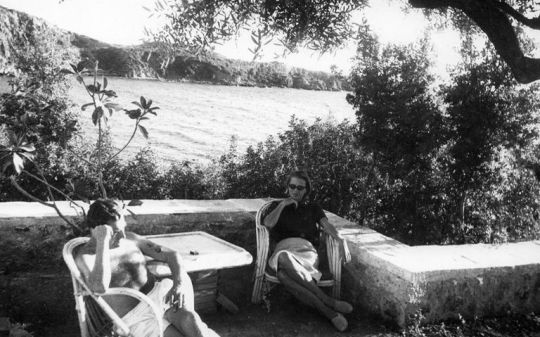
Intriguingly, Paddy liked to claim he was descended from Counts of the Holy Roman Empire, who came to Austria from Sligo. Paddy could recite ‘The Dead at Clomacnoise’ (in translation) and perhaps did so during a handful of flying visits to Ireland in the 1950s and 1960s, partying hard at Luggala House or Lismore Castle, or making friends with Patrick Kavanagh and Sean O’Faolain in Dublin pubs. He once provoked a massive brawl at the Kildare Hunt Ball, and was rescued from a true pounding by Ricki Huston, a beautiful Italian-American dancer, John Huston’s fourth wife and Paddy’s lover not long afterwards.
And yet, a note of caution about Paddy’s Irish roots is sounded by his biographer, Artemis Cooper, who also co-edited ‘The Broken Road’, the final, posthumously published instalment of the trilogy. “I’m not a great believer in his Irish roots,” she said of Leigh Fermor in an interview, “His mother, who was a compulsive fantasist, liked to think that her family was related to the Viscount Taaffes, of Ballymote. Her father was apparently born in County Cork. But she was never what you might call a reliable witness. She was an extraordinary person, though. Imaginative, impulsive, impossible - just the way the Irish are supposed to be, come to think of it. She was also one of those sad women, who grew up at the turn of the last century, who never found an outlet for their talents and energies, nor the right man, come to that. All she had was Paddy, and she didn’t get much of him.”
And I think that’s the point, no one really got much of Paddy Leigh Fermor even as he only gave a crumb of himself to others but still most felt grateful that it was enough to fill one’s belly and still feel overfed by him.
Paddy never tried to get to the bottom of his Irish ancestry, afraid, no doubt, of disturbing the bloom that had grown on history and his past, a recurring trait. “His memory was extraordinary,” Artemis Cooper noted, “but it lay dangerously close to his imagination and it was a very porous border.”
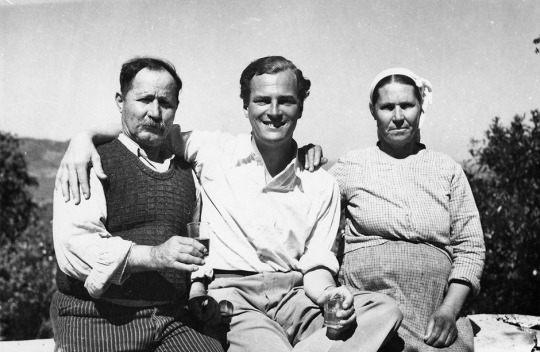
Within the Greek imagination many Greeks saw in Paddy Leigh Fermor as the second coming of Lord Byron. It’s not a bad comparison.
Lord Byron claimed that swimming the Hellespont was his greatest achievement. 174 years or so later, another English writer, Patrick Leigh Fermor - also, like Byron, revered by many Greeks for his part in a war of liberation - repeated the feat. Leigh Fermor, however, was 69 when he did it and continued to do it into his 80s. Byron was a mere 22 years old lad. The Hellespont swim, with its mix of literature, adventure, travel, bravery, eccentricity and romance, is an apt metaphor for Leigh Fermor’s life. Paddy Leigh Fermor was the Byron of his time. Both men had an idealised vision of Greece, were scholars and men of action, could endure harsh conditions, fought for Greek freedom, were recklessly courageous, liked to dress up and displayed a panache that impressed their Greek comrades. Like a good magician it was also a way to misdirect and conceal one’s true self.
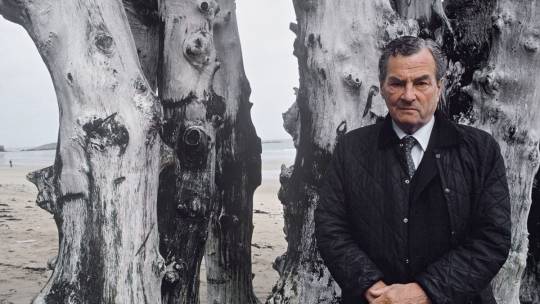
What or who was the true Paddy Leigh Fermor?
Like Byron, Leigh Fermor appeared as a charismatic and assured figure. He was a sightseer, consuming travel, culture, and history for pleasure. He was an aristocrat moving in the social circles of his time. He was a gifted amateur scholar, speculating on literary and historical sources. Leigh Fermor, Byron’s own identity, is subject to textual distortion; it emerges from a piece of occasional prose in his books and is shaped by the claims of correspondence on a peculiarly fluid consciousness.
There is no hard and fast distinction to be drawn here between real and imagined, only a continuity of relative fictions that lie between memory and imagination as his biographer asserted. If there is a will to assert identity here, to disentangle fact and fiction, to give things as they really are and nail down the real Leigh Fermor then it is somewhere between the two. This is where we will find Paddy.
For many his death marked the passing of an extraordinary man: soldier, writer, adventurer, a charmer, a gallant romantic. As a writer he discovered a knack for drawing people out and for stringing history, language, and observation into narrative, and his timing was perfect. Paddy often indulged in florid displays of classical erudition. His learned digressions and serpentine style, his mannered mandarin gestures, even baroque prose, which Lawrence Durrell called truffled and dense with plumage, were influenced by the work of Charles Doughty and T.E. Lawrence. But one can’t compare him. I agree with the acclaimed writer Colin Thurbon who said, “There is, in the end, nobody like him. A famous raconteur and polymath. Generous, life-loving and good-hearted to a fault. Enormously good company, but touched by well-camouflaged insecurities. I would rank him very highly. ‘The finest travel writer of his generation’ is a fair assessment.”
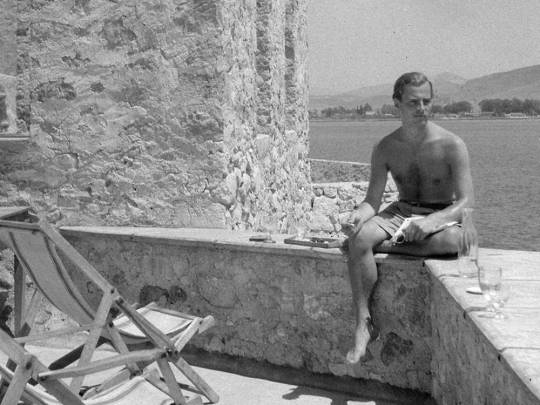
As a child I didn’t really know who Paddy Leigh Fermor was other than this very cheerful and charismatic old man was kind, attentive, and took a boyish delight in everything you were doing. Only later on in adulthood was it clear to that Paddy was not only among the outstanding writers of his time but one of its most remarkable characters, a perfect hybrid of the man of action and the man of letters. Equally comfortable with princes and peasants, in caves or châteaux, he had amassed an enviable rich experience of places and people. “Quite the most enchanting maniac I’ve ever met,” pronounced Lawrence Durrell, and nearly everyone who’d crossed paths with him had, it seemed, come away similarly dazzled.
I am equally dazzled - more smitten in retrospect - for alas they don’t make men like Paddy any more. But every time I dip back into his books I think I discover a little bit more of who Paddy Leigh Fermor was because I find him some where between my memory and my imagination.
#essay#paddy leigh fermor#leigh fermor#joan raynor#joan leigh fermor#greece#crete#second world war#SOE#war#british army#history#general kreipe#stanley moss#literature#author#writer#travel#explorer#wanderlust#travel writing#europe#mani#peloponnese#kardamlyi#lord byron#ill met by moonmight#film#movie#personal
134 notes
·
View notes
Text
The Valley of Fear: The Tragedy of Birlstone
Tunbridge Wells, which became Royal Tunbridge Wells in 1909 as it had long been popular with the royals, is a former spa town about 30 miles SE of central London and still a tourist destination. Well connected to London, it had three railway stations, two of which remain open with Southeastern services and the other now being the eastern terminus of the heritage Spa Valley Railway. It has also gained a reputation as being peak "Middle England" and middle class:
While Birlstone is fictious, 10-12 miles west of Royal Tunbridge Wells lies East Grinstead, in West Sussex since 1974 county boundary changes. The Queen Victoria Hospital there was a pioneer in plastic reconstructive surgery, starting during the Second World War mostly with badly burned RAF servicemen who had undergone experimental treatment. These formed the "Guinea Pig Club", a social group that continued with annual reunions until 2007, when it was wound down due to the increasing frailty of its members; the final two members died in 2023 aged 101.
East Grinstead is the northern terminus of the Bluebell Railway, whose Victorian-era Metropolitan Railway carriages have featured in Sherlock Holmes adaptations.
Hugo de Capus is fictitious. The 'Red King' in this conference refers to William II of England, aka Wiliam Rufus or 'red', possibly due to having red hair. The third son of William the Conqueror, he succeeded to the English throne in 1087 on his father's death (first son Robert got Normandy) and reigned until 1100 when he got an arrow through the lung while out hunting. The circumstances are suspicious on that one. With no wife or children - not even a mistress - along with posthumous comments by medieval writers - have led to speculation he was gay, bisexual or celibate.
Sir Arthur Conan Doyle was directly inspired in the layout of Birlstone by this place and credits it in the book:
A windlass is a device used for lifting heavy weights:
"Sawed-off shotguns" had been used by Confederate cavalry during the American Civil War; they remain popular for police and military use due to being easier to use inside buildings.
In the US, acquiring or modifying one requires paying a registration fee and tax with the ATF.
In the UK, they became very popular for criminal use due to the ease of obtaining and modifying shotguns, especially for armed robberies. This resulted in the 1968 Firearms Act, modified in 1988 following a mass shooting in Hungerford the previous year that saw a man kill sixteen people with a shotgun before turning the weapon on himself.
The current law is that a shotgun with a barrel below 24 inches in length or an overall length below 40 inches cannot be owned on a shotgun certificate - which can be obtained from the police subject to a background check and generally having a good reason. They are treated as Section 1 firearms and you need a firearms certificate, much harder to get, and only weapons with non-removable magazines of less than two rounds i.e. your standard smooth-bore double-barrel type. Pump-action or other shotguns below that length are straight up illegal, possession being a serious criminal offence.
Railway crashes were sadly very common in late Victorian England.
17 notes
·
View notes
Text
merthur fic recs: magic reveal pt 6
1. An Account of the King's Acute Stress as Documented by a Court Physician by billiamshakespeare
Uther Pendragon was known to have occasional acute heart issues due to stress. Gaius just didn't have the foresight to assume it was hereditary.
AKA, 5 times Merlin gave Arthur a heart attack, and 1 time Arthur returned the favor
~~~
sfjkhjl lmaoooo
2. The Choice by lavender_spice (@drlavenderpepper)
Merlin is mortally wounded in the Disir's cave. Now Arthur is presented with one of the most difficult choices of his life: save his friend or let his father's legacy die.
~~~
the disir fix it fic we all need
3. the weight we carry by apileofashandember (@apileofashandember)
Gaining a pair of dragon wings upon becoming a dragonlord wasn’t all that bad, except for the amount of times he had to sneak away in the middle of the night to let them out. And of course, his increased lying to Arthur.
~~~
ahhh i love this concept sm
#merthur#merlin x arthur#merlin fic#bbc merlin#merlin#merthur fic#merthur fanfiction#merthur fluff#merthur fanfic#merthur fic rec#merthur fic recs#magic revealed#magic reveal#merlin's magic revealed#5 + 1 fic#5 + 1 things
333 notes
·
View notes
Text
🎁🎉🎂Happy Birthday Harlequin!🎂🎉🎁
Last year I designed an outfit for him, and I intend to do that this year as well, but since it took me till the 27th to finish Elaine's(her birthdays was the 15th) I'm not super confident that I'll have that finished on time. If I do, you're probably looking at that right now, but if not! Then at least this will be out on time.
Well that didn't work... My sleep schedual betrayed me and I didn't even get this posted on time... I meant to take a nap. I set 3 alarms. Did not work. Slept for 15 hours...
Anyway, this year, along side the outfit design, I'll also be doing an analysis that I've been wanting to do for quite a long while.
A name analysis!
Most of the characters in The Seven Deadly Sins -at least the important ones- have names relating to Arthurian myth, as the story is kind a based in it. But this, oddly enough, doesn't apply to almost any of the Fairies, even Harlequin -AKA "King"- despite him being one of the titular characters.
Meliodas and Ban are the fathers of two of Arthur's knight, Tristian and Lancelot respectively, Merlin is Merlin, iirc there are two different Escanors depending on the story, and Gowther is...apparently Merlin's half-brother according a glance at google... Diane's namesake is a little harder to track down, but she's not directly Arthurian either from what I can gather. As far as I know the only Fairy who does align with Arthurian myth is Elaine, but the Elaine that's Ban's wife is not the only Elaine you'll find in Arthurian stories, it was a common name.
Anyway
Most people know the word "harlequin". Simply put it's a french clown.
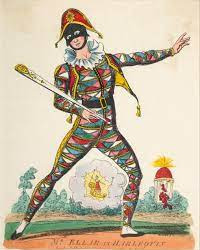
-Oh and apparently also a duck XD

BUT
Not everyone who knows that, knows where the word comes from, or what the king of the Fairies would have it for a name.
The origin of the word is actually a lot older than the french clown concept and isn't actually french all the way back. here's what Google has to say;
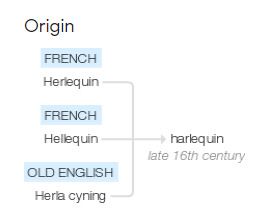
"late 16th century: from obsolete French, from earlier Herlequin (or Hellequin ), the name of the leader of a legendary troop of demon horsemen; perhaps ultimately related to Old English Herla cyning ‘King Herla’, a mythical figure sometimes identified with Woden."
I actually learned this from a youtube video some years back, by Overly Sarcastic Productions. It's a Halloween episode discussing the concept of the "Wild Hunt". I highly recommend the video and the channel as a whole, they're really great, very funny and you learn a lot. The video is a little under 17 minutes long, though, so if you're only interested in the part relevant this analysis jump to 11:05 in the video.
For anyone who doesn't want to watch that and would rather read me summerize it, in the video it's explained that the Scandinavian version of the Wild Hunt is called "Odin's Hunt" but in Old English it's called "Herlaþing" which means "Herla's Assembly". Herla being a King of the Britons who makes a deal with a dwarf where the two attend each other's weddings. The dwarf is a perfect guest at Herla's wedding and the following year Herla goes to the dwarf kingdom to return the favor. When he leaves the dwarf gives him a hunting dog and warns him not to get off his horse till the dog does. When they get back the dog doesn't get off the horse, Herla asks a random person they pass how his wife is doing only to find out that 3 days in dwarfland = 300 years in humanland. Some of his men are shocked and get off their horses, only to age to dust when they touch the ground, so Herla is stuck riding his horse for eternity.
The concept of an eternal wander was popular and in the 11th century a french monk/chronicler used the phrase "Familia Herlequin" to describe a host of demons pursuing a monk, lead by a masked giant. This masked hunt leader would evolve into the character we now know as a "harlequin", a trickster character is french passion plays.
God, king and trickster presented as a fool, that actually kinda tracks, doesn't it?
And that, is why the king of the Fairies is named Harlequin.
#seven deadly sins#nanatsu no taizai#four knights of the apocalypse#mokushiroku no yonkishi#7ds#nnt#4kota#7ds fairy#nnt fairy#4kota fairy#7ds king#nnt king#4kota king#fairy king harlequin#7ds analysis#nnt analysis#4kota analysis#etymology#what even is time T-T
26 notes
·
View notes
Text
Terrible Fic Idea #73: Game of Thrones, but make it Lancelot
As anyone can tell you, I have a terrible weakness for female Jon Snow fics, largely because a female heir to the throne allows you to combine claims and explore facets of Westeros in a way that can't be easily done with rival male claimants. And then I thought: if I can have an Anne Boleyn, why not a Lancelot?
Or: What if Jon Snow, the most famed knight of his generation, had an affair with the Queen of Westeros?
Aka: The Lord Protector Fic
Just imagine it:
Everything follows canon, except Cersei Lannister dies in childbirth with her second child, Myrcella. This bothers her husband not at all and, despite Jon Arryn's urging him to remarry to secure his throne, Robert works his way through a series of brothels and mistresses before being forced to marry 14-year-old Margaery Tyrell in 297 in exchange for House Tyrell paying off some of his debts.
When Jon Arryn dies the following year, Robert and his court head north as per canon. While there, Sir Barristan takes interest in young Jon Snow - perhaps he sees something of Rhaegar in the boy, maybe he imagines he sees something of his presumed uncle Arthur Dayne's talent in him - and offers to raise him to knighthood with the aim of one day serving in the Kingsguard.
Ned is unable to turn down the offer, and reluctantly allows Jon to accompany them to King's Landing.
Jon quickly gains a reputation for gallantry and chivalry to rival either Barristan the Bold or Arthur Dayne - he intervenes when Joffrey tries to have Lady put down, makes a strong showing in the Hand's Tourney, and preforms several small acts of standing up for ladies/smallfolk/children that are quickly mythologized. Within two years he's knighted, with some asking if he will be allowed to take up the Sword of Morning as a presumed bastard of House Dayne.
Princess Myrcella is particularly taken with him after he defends her from Joffrey and demands he become her sworn sword until a position opens up in the Kingsguard.
His actions also draw the attention of Queen Margaery, who is even less happy in her position as queen than Cersei was but much better at hiding it. At first it's just friendship couched in a courtly love tradition, but by 299 they're lovers. When she gives birth to Prince Harlen a year later there's no doubt in her mind that Jon is the father.
Meanwhile, King Robert is almost as taken with Jon as his wife and daughter, for here is a version of Ned Stark who is also knightly, willing to take part in tourneys and feasts and dancing, and cannot help but see Jon as the son he never got to have with Lyanna. Instead of allowing Jon to take a position the Kingsguard as they open up, he showers Jon with riches and titles.
After winning a huge purse at the tourney in honor of Prince Harlen's second birthday - and Queen Margaery's second pregnancy - Jon is named Lord Cargyll, taking up the name and lands of the extinct Crownlands house of the same name, changing the golden goose in their banners to a golden direwolf.
After a falling out with Renly a year later, Jon is named Master of Laws...
...and six months later Robert's vices finally catch up with him, infamously being found dead in brothel of particularly ill-repute following an orgy.
Joffrey, now 17, is still very much his mother's son. One of his first acts on being named king is to declare his father's second marriage invalid and his half-siblings, Prince Harlen and Princess Lenna, bastards. His second act is to declare most of his father's Kingsguard and small council traitors for allowing his father to be "lured" to the brothel where he was "assassinated by Targaryen loyalists."
This naturally goes down badly, and though some of the lords named are captured and executed - Ned Stark, Petyr Balish, and Grand Maester Pycelle among them - most manage to escape. Jon in particular is able to get Margaery and the royal children to his lands in the Crownlands, and start raising a rebellion in Prince Harlen's name.
Robb ends up leading an army south to avenge his father, as per canon, but is never named King in the North. He does win several key victories against Tywin Lannister in the west, eventually taking Tywin himself captive. His victories earn him the nickname the Hammer of the West, a la Edward I.
Jon leads the fighting against the Lannister forces in the east, eventually taking King's Landing. The fact that he's able to keep his army from sacking the city and offers Joffrey the chance to take the black earns him the nickname Jon the Just. (Joffrey naturally refuses, tries to attack Jon in a rage, and is very swiftly killed in self-defense.)
In the aftermath, 4-year-old Harlen is crowned king. His mother Margaery is named Queen Regent, with Jon being asked to serve as Lord Protector of the Realm instead of taking one of the open spaces in the Kingsguard. He agrees, and two years later weds Margaery in a ceremony forever known as the Rose Wedding. (It's not as flash as the Golden Wedding, but is still something else.)
Meanwhile, Tywin is sent into exile for his part in abetting Joffrey's actions, with Tyrion taking over as Lord of the Rock. He and Sansa eventually wed and, though their marriage is never one of love, both are are content with their choice.
Robb marries Myrcella. Theirs does end up being a love match, becoming taken with each other when they first meet in the aftermath of Harlen's Rebellion. After their marriage they seem to make it their effort to make up for all of House Stark's losses, eventually having eleven children live to adulthood and marry into various important houses. By their deaths they're known as the Grandparents of Westeros.
Jon goes to his grave thinking he is Ned Stark's son, not knowing he's inadvertently brought about a Targaryen restoration.
Bonuses include: 1) the full force of angst and drama being brought to bear on Jon and Margaery's relationship, from its start as a mutual crush when they first come to each other's attention on the journey from Winterfell until they finally marry in 306. This should include Jon's desire never to father a bastard, Margaery's awareness that infidelity in a queen is treason, and their inability to keep away from each other. Extra bonus points if Margaery is able to pass Harlan and Lenna off as Robert's even to Jon, and not admit the truth until many years later; 2) every possible Camelot illusion that can be made to King Robert's court, made with the full knowledge that the beauty and glamor and chivalry of both courts is just smoke and mirrors, and one doesn't have to go looking very hard to find the gritty, painful, ugly reality beneath; 3) Jon using his time as Lord Protector to force through something like the Magna Carta, which enshrines basic rights that even kings must follow far more than the RL document actually did; and 4) Sansa having a prominent B-plot, slowly realizing during her time at court that not everything can be a song. The turning point of this is not Ned's execution, but her discovery of Jon and Margaery's affair years before - and her active choice to cover for them so that someone at least gets their happy ending.
And that's all I have. As always, feel free to adopt this plot bunny, just link back to me if you do anything with it.
Other Jon Snow Headcanons: Aelor the Accursed | Aegon the Adopted | Aegon the Undying | Aegon the Unyielding | Aemon the Adventurous | Baelor the Brave | Bastard of Winterfell | Daemon the Destroyer | Daena the Dreamer | Daeron the Desired | Dyanna the Defiant | Elia the Magnificent | Jon the Fair | Jon Whitefyre | King of the Ashes | Lady Arryn | Lady Baratheon | Lady Lannister | Lady Stark | Lord of the Dance | Lord Protector | Maekar the Maester | People's Queen | Prince Consort | Prince of Summerhall | Queen Mother | Queen of Nightingales | Red Queen | Rhaegar the Righteous | River Queen | Shiera Snowbird | Visneya the Victorious | Weirwood Queen | Wolf Queen
More Terrible Fic Ideas
#plot bunny#fic ideas#game of thrones#a song of ice and fire#got#asoiaf#jon snow#jon snow is a targaryen#secret affair#chivalry#courtly love#robert baratheon#margaery tyrell#Jon x margaery#targaryen restoration
41 notes
·
View notes
Text
GUYS I HAD AN IDEA FOR A MALEVOLENT AU
okay so it's a human!john and yellow au that is completely separate from canon. John and Yellow are the twin sons(fraternal) of some important billionaire(aka the King in Yellow obviously) (john is older and just a little taller if you were wondering. yes yellow resents this a little).
and John is supposed to inherit whatever business his father owns but he didn't really want to so he left. and yellow was instructed to find him. and while John is missing he meets Arthur and they become friends and when Yellow finds John Arthur is like "no you can't have him" and there's definitely some angst here cuz this is Malevolent but inevitably yellow's like "whatever man" and leaves them alone
and that's the plot :)
Arthur has really bad eyesight in this to comply with the fact that he is blind in canon. Like, really really bad eyesight. yes this means he has mixed up Yellow and John before and yes Yellow was properly upset about it
John and Arthur met when somehow Arthur dropped his glasses/they got knocked off and John picked them up and gave them to him cuz arthur can't see lol (yes that is my weak attempt at canon compliance shut up)
Yellow kinda hates Arthur but also is super ride or die with him because screw him but he kinda likes this pathetic little British man
and yah that's my AU. i might draw or write something for it but idk
29 notes
·
View notes
Text
Is it really accurate to use the word "selfless" to describe Merlin?
"Selfless" is a word with an undeniable good "white" connotation and when it comes to Merlin, I don't think we can say something is black or white in its entirety. So this question is kind of tricky and, honestly, far too complicated to answer it with a simple and short yes or no.
Let me elaborate.
He was not selfish when it came to himself as a person —that part is right— as he never hesitated in giving his life for others, always helped his friends no matter what, never seeked power nor recognition for himself, etc.

But I do think he was selfish, extremely so at times, when it came to his own self-interests. The main one being Arthur's safety and wellbeing.
And why do I say this? Let's go back to memory lane and remember some of his decisions throughout the show!
1. He condemned (heartbrokenly, I'll give him that) his whole kin to continue living in the shadows and most probably to be executed if they were caught practicing magic in Camelot just so Mordred could die and Arthur could live by extension.
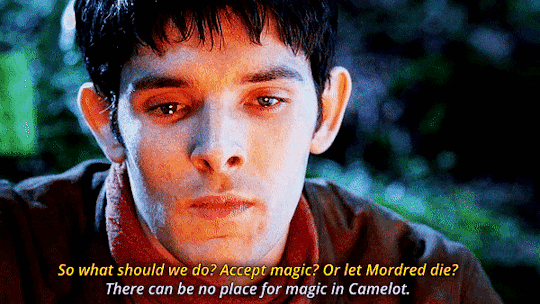
2. Talking about Mordred, he never gave him the chance to prove himself trustworthy and loyal to Arthur, he just decided he was evil since he saw he was destined to kill his friend instead of trying to change that outcome or understand where would that could come from.

3. He lied to Arthur about himself and what he was for the whole decade they knew each other so Arthur wouldn't feel bad for choosing him over his father when he found out about his magic. Or viceversa.

4. He always put Arthur's life before any other's, including his closest friends: remember when he repeatedly tried to talk Arthur out of going to save them from Morgana because he was worried about him as the druid seer showed him he was going to be killed by a man aka Mordred?

5. He lied to Arthur about his mother and what Uther did to conceive him (he also robbed him that unique and beautiful moment he shared with his mom), something he had all the right to know, so Arthur wouldn't kill Uther and hate himself for it for the rest of his life.

6. He took Arthur's free will away from him so he would agree to everything Merlin said and he could take him out of the castle and save his life when Morgana and Agravaine attacked.

And I could go on, honestly, but I won't because I fear some people might take this as a hating post towards Merlin, which it definitely is not lol. Quite the contrary, actually! I understand and, to a certain point even love, all the decisions Merlin took because it just proved the inmensity of his love for Arthur.
So if I mention all this is because, despite having honorable goals —as saving someone's life (Arthur's) or sparing them the possibility of feeling irrevocably guilty for taking a life-altering decision when their heads were clouded by anger, sadness and fear— the means he used to do all that were highly questionable to say the least: lies, deceiving, manipulation, mind-control and so on are, in no way, justifiable.
They are just not.
But we fans decide to brush those aside and accept them because we understand that it all came out from a place of love. Pure, huge, raw and unwavering love. Although, that still doesn't make it right. Not really.
I will dare to say it actually makes it worse.
Love is a complicated and, may I say, dangerous feeling. It can make us feel happier, confident with oursleves, adventurous and giddy. But it can also make us stupid, blind and selfish.
And that's exactly what it did to Merlin.
He came to a point where he stopped caring about his destiny and focused only on saving Arthur's life, others be damned, just because he loved him too much and he couldn't bare to lose him.
And unfortunately at the end, it was that love, and the King's complete and blind trust in Merlin, that got Arthur dead.

To sum it up, I don't think there's a better way to describe Merlin than to say he was a whole spectrum of greys. A constant paradox of selflessness and selfishness. Another victim of love.
Anyway, he was far from perfect but that's exactly why I love him! He could come as the most selfless person at first glance (and to a certain degree, he was; although I think the word sacrificial suits him even better) but if you really look at it, specially from a canon era outsider POV, he could rather come as a selfish, powerful man that wouldn't hesitate in destroying you if it means he can save Arthur's life with that.
He was truly unhinged when it came to his other half and that's exactly why he's my second most favorite fictional character ever created!
**The first one being Dean Winchester, another unhinged man that couldn't live without his baby brother and would burn the whole world willingly only to keep Sammy safe!

Huh.
Now that I think about it.
Maybe I have a type?
#bbc merlin#merlin#arthur pendragon#mordred#character study#merlin loves arthur a lot#maybe too much#arthur was merlin's number one priority#arthur x merlin#my opinion#arthur's bane was his trust for merlin and merlin's love for him actually#they really were two sides of the same coin#supernatural#dean winchester#sam winchester#merlin and dean my most unhinged beloveds#i love merlin and dean winchester parallels#samdean and merthur are truly so similar in so many things is insane#best fictional characters#and i won't take criticisms
77 notes
·
View notes
Text
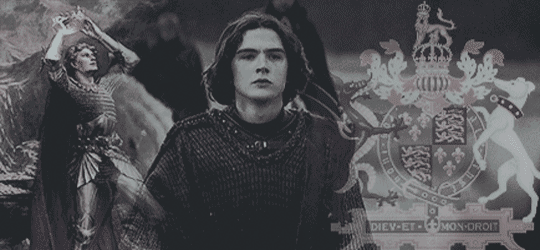
JON SNOW || MAB DAROGAN
According to Welsh mythology, Mab Darogan or the "Son of Destiny" is a messianic figure that would force the Anglo-Saxons and the Vikings out of Britain and reclaim it for the Celtic Britons.
In ASOIAF, Jon Snow is assassinated while he's about to rail against the Boltons who have usurped his family's castle and currently rule the North. It's possible that after his eventual resurrection, he will still want to fight against the Boltons and drive them out of his ancestral house. After he succeeds, the people of the North who have suffered under Bolton's rule will see him not only as their rightful ruler since he's the heir to their late King Robb Stark but also as a savior (aka a messianic figure).
Through the centuries various historical and mythological figures have been linked to Mab Darogan.
Jon Snow shares some parallels with two of those: the mythical King Arthur and the historical Henry VII of England.
Both Arthur and Jon are illegitimate kids of royalty. King Uther Pendragon fell in love with the married Igraine and either forced her to be with him or she also fell in love with him depending on the version of the story. Similarly, Prince and Heir to the throne Rhaegar Targaryen fell in love with Lyanna Stark, who was engaged to another man, and according to rumors in Westeros, he kidnapped her and raped her. However, it's more likely by various hints we get through the books that the affair between Rhaegar and Lyanna was consensual. Both affairs lead to wars and Uther and Rhaegar dying without meeting their sons.
It is worth noticing that in some tales, Uther and Igraine are married after her first husband's death so Arthur isn't illegitimate. In ASOIAF universe, Rhaegar could have possibly married Lyanna as Targaryen aren't against polygamy and thus making Jon his legitimate heir. Not that it actually matters, because just like Arthur is the true heir to his father even in the versions he's a bastard, similarly Jon Snow is the narrative heir of Rhaegar who can save the world regardless of his bastard status or lack of it.
Let's move to the similarities between Henry VII and Jon Snow. Martin has already shared that the War of Roses was a major inspiration for the book series. At the end of the War of Roses, it's neither House Lancaster (inspiration for House Lannister) nor House York (inspiration for House Stark) which emerges victorious but instead the new King is Henry Tudor who starts his own dynasty. The said King wasn't the most likely candidate to the throne as he wasn't closed related to any of the previous Kings, like Jon isn't related to either Tommen/Joffrey/Robert/Stannis/Renly. Instead he drew his claim through kinship to older generation Kings with whom he didn't share the same surname. Jon is also related with all Targaryen Kings despite not sharing their surname.
Henry's father died in battle before he was born, like Rhaegar died on Trident. Both Henry and Jon were raised by their uncles who shaped lot of their views. Henry spent a long time in exile hiding from his opponents and similarly Eddard Stark raised Jon Snow to the far north to keep him away from King Robert's wrath- in case he found out about Jon's existence. Besides, even after leaving Winterfell, Jon went to the Wall which counts as a sort of exile away from the rest of the Kingdom. Henry returned to England from exile and fought and won the english crown against King Richard III. Jon is dying as he tries to raise an army to fight Ramsay Bolton in order to reclaim Winterfell. When he's eventually resurrected, he's gonna continue his fight against Boltons and probably like Henry Tudor he will come out victorious. Could he also battle the possible King candidates of the South? That's something up to speculation.
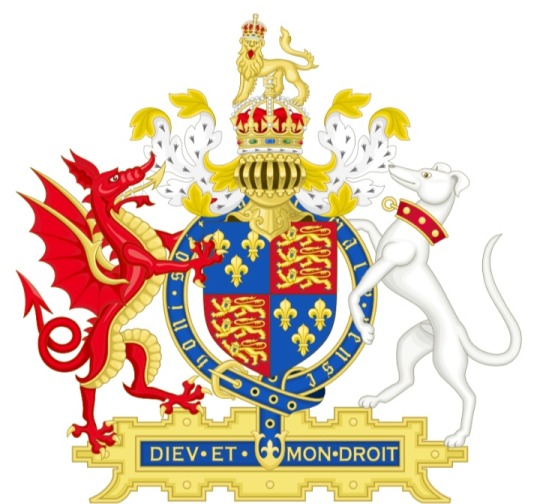
Coat of Arms of King Henry VII of England.
Another interesting thing about Henry VII is that his coat of arms included a white dog and a red dragon, which is very similar to a possible Jon Snow's coat of arms (a red dragon for House Targaryen and a white direwolf for House Stark).
The famous badge of House Tudor (Henry VII's House) consists of the combination of the white rose (House York) and the red rose (House Lancaster). Could Jon Snow also combine both Targaryen and Stark colors on his own badge? Or maybe he'll adapt the blue rose which is significant to his parents'story?

Above is portrayed the rose of House Tudor while below there are those of House Lancaster and House York.
#asoiafcanonjonsnow#Jon Snow#Meta#valyrianscrolls#Parallels#King Arthur#Henry VII of England#Mab Darogan#Speculation#Politics and Rulership#R+L=J#CanonJonSnow#Winter Rose#ASOIAF#A Song of Ice and Fire#Original Post
111 notes
·
View notes